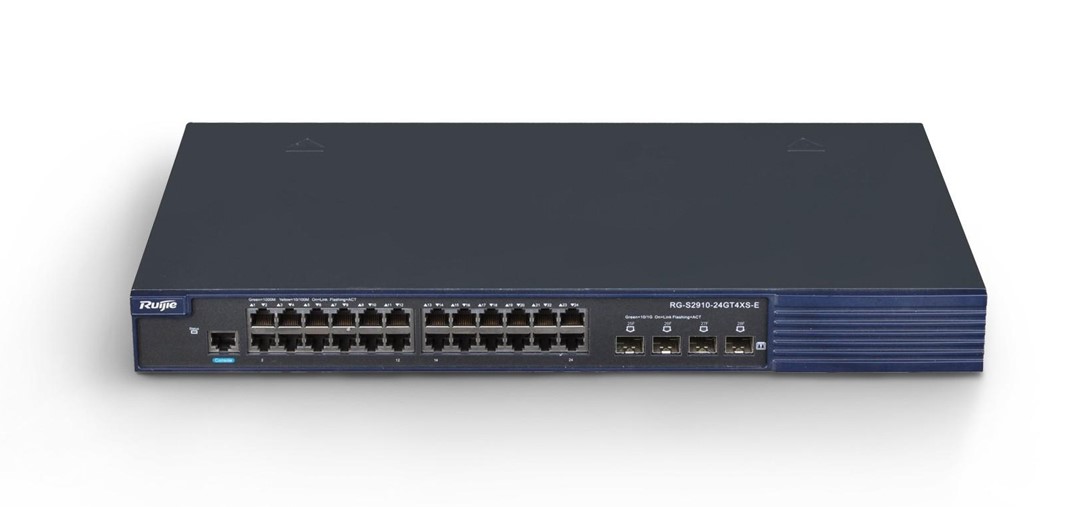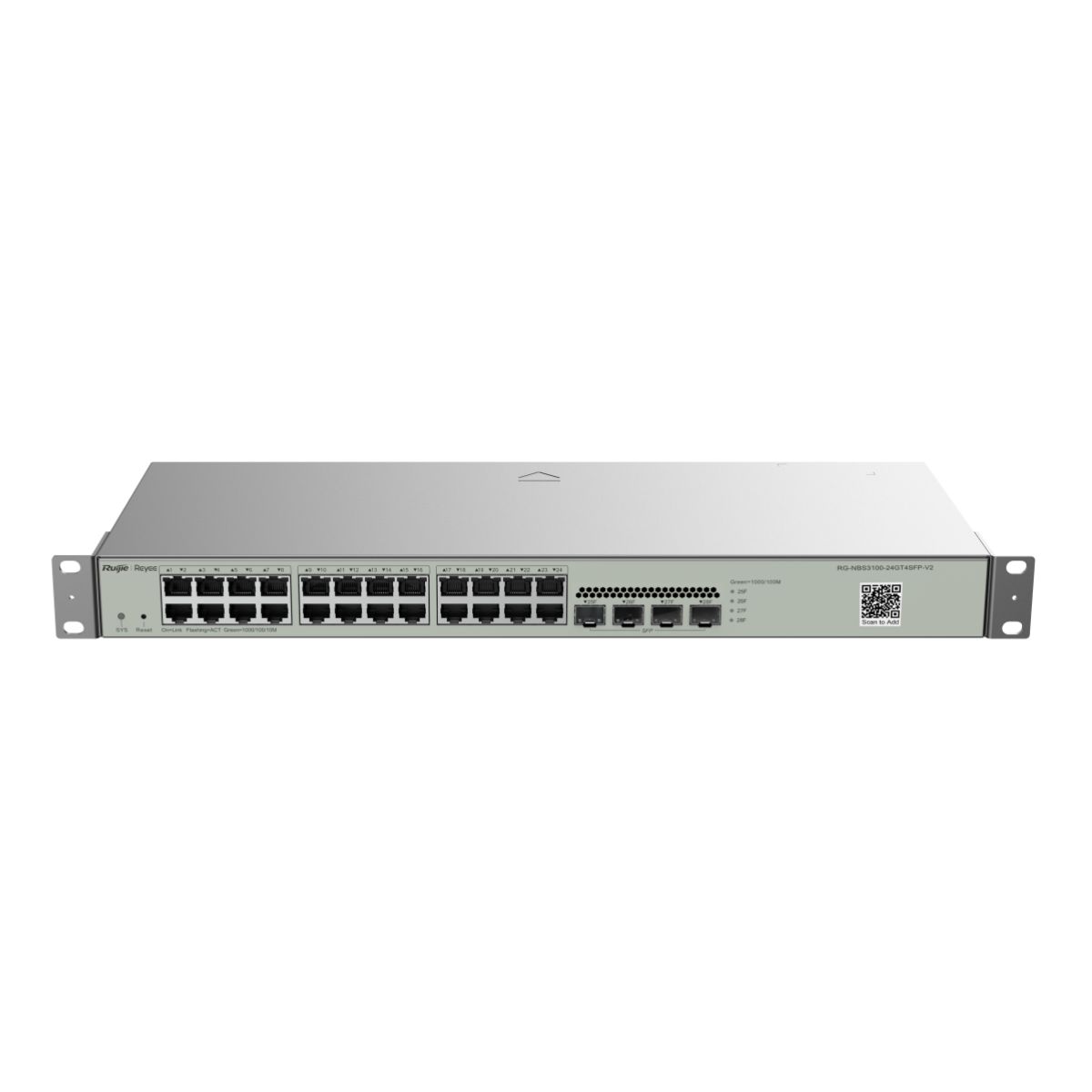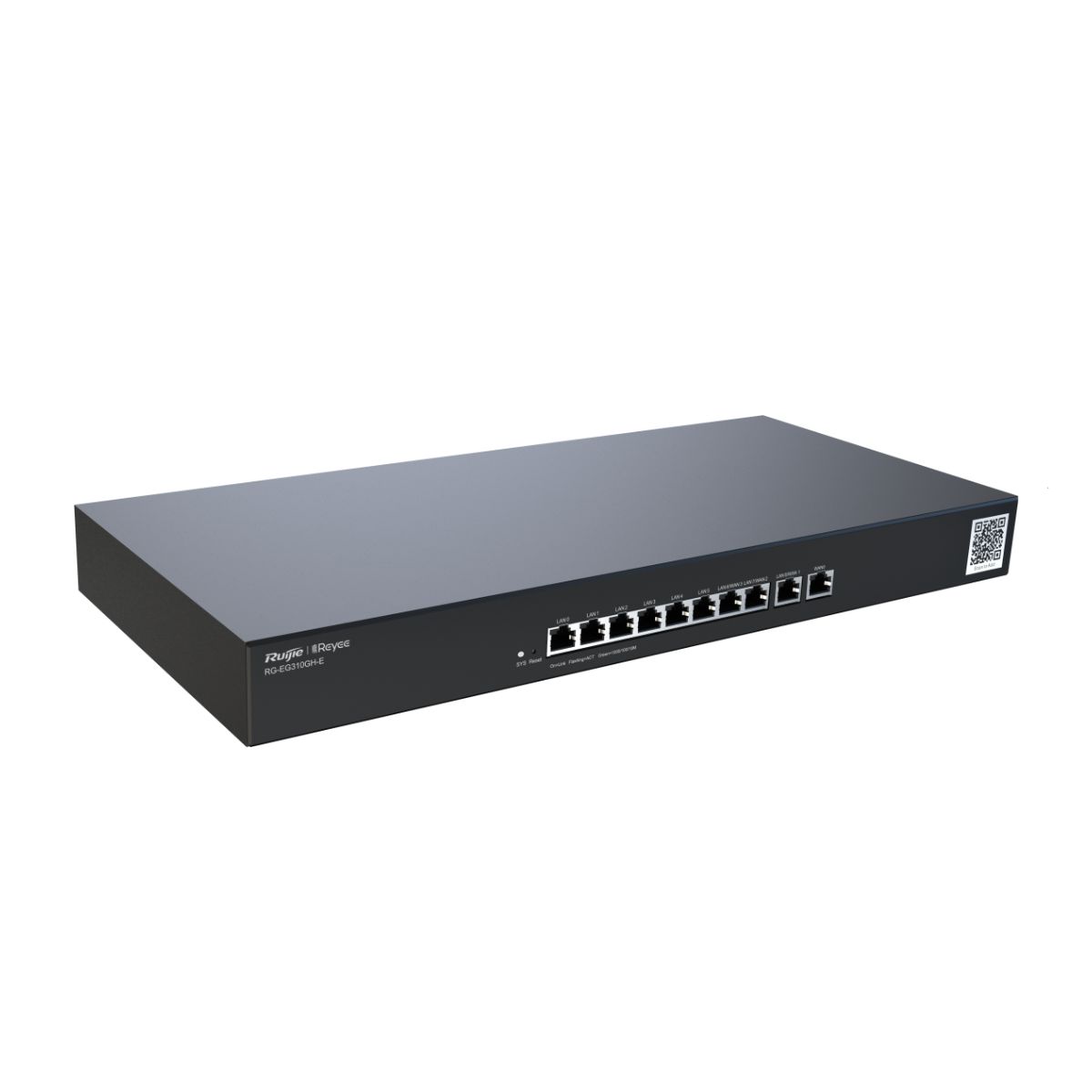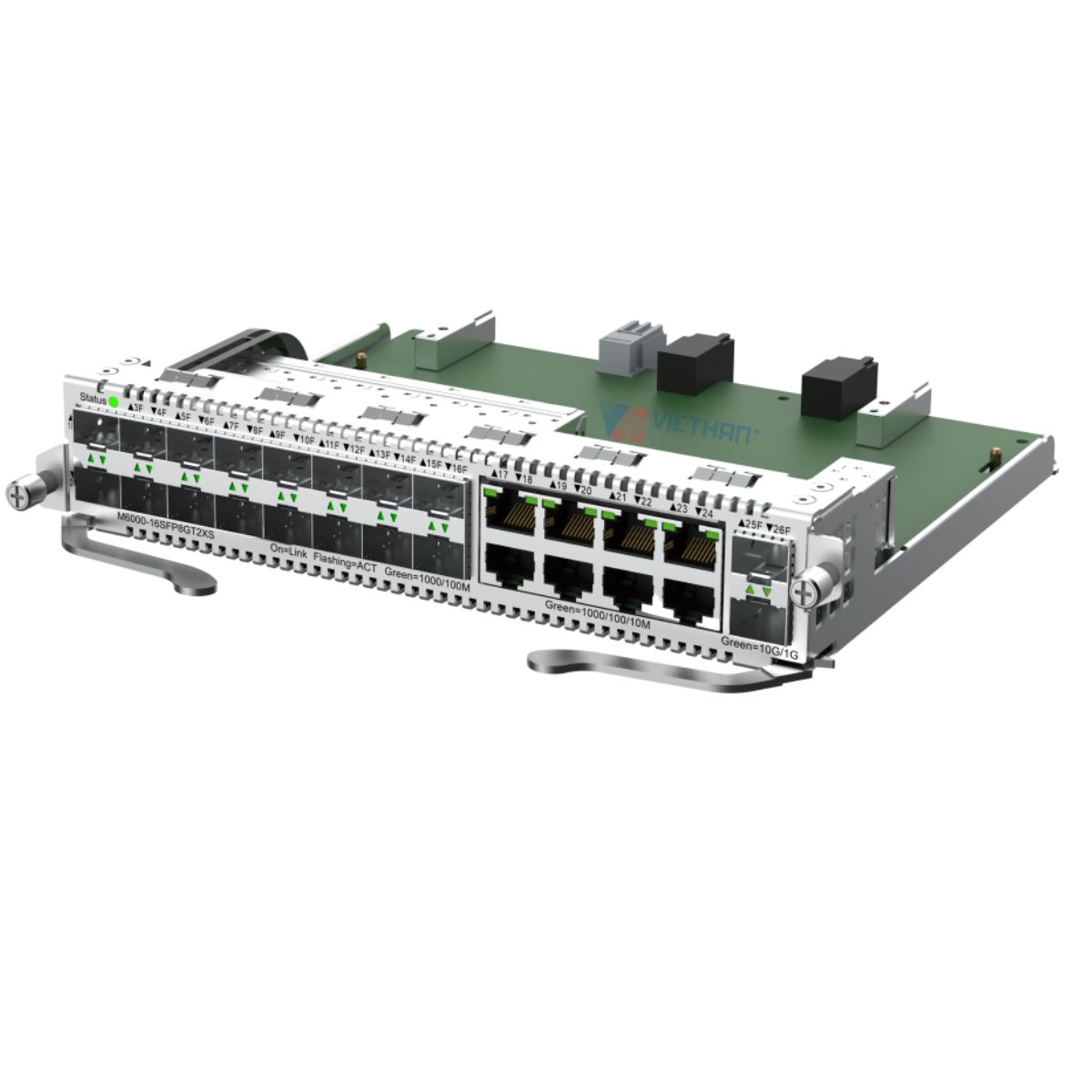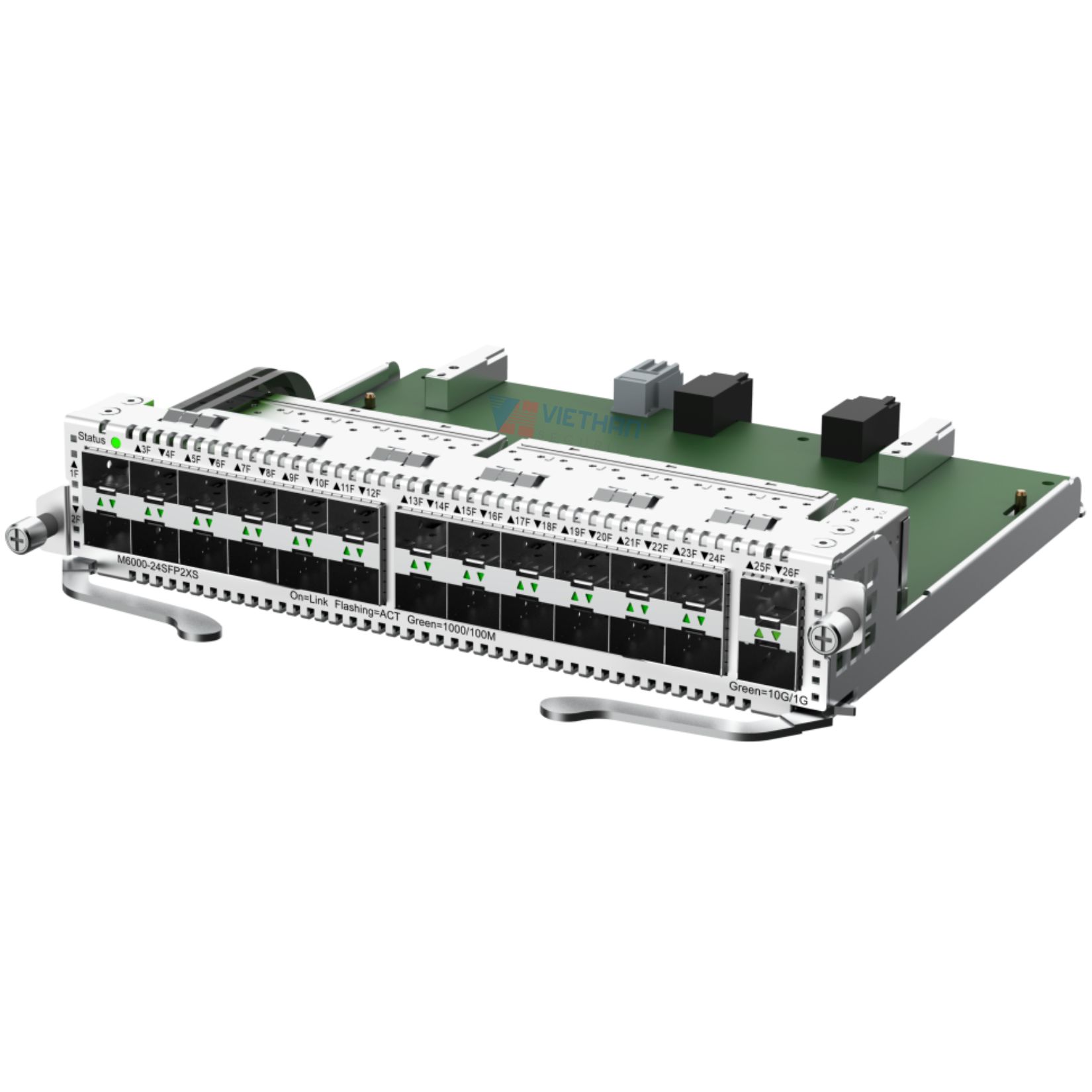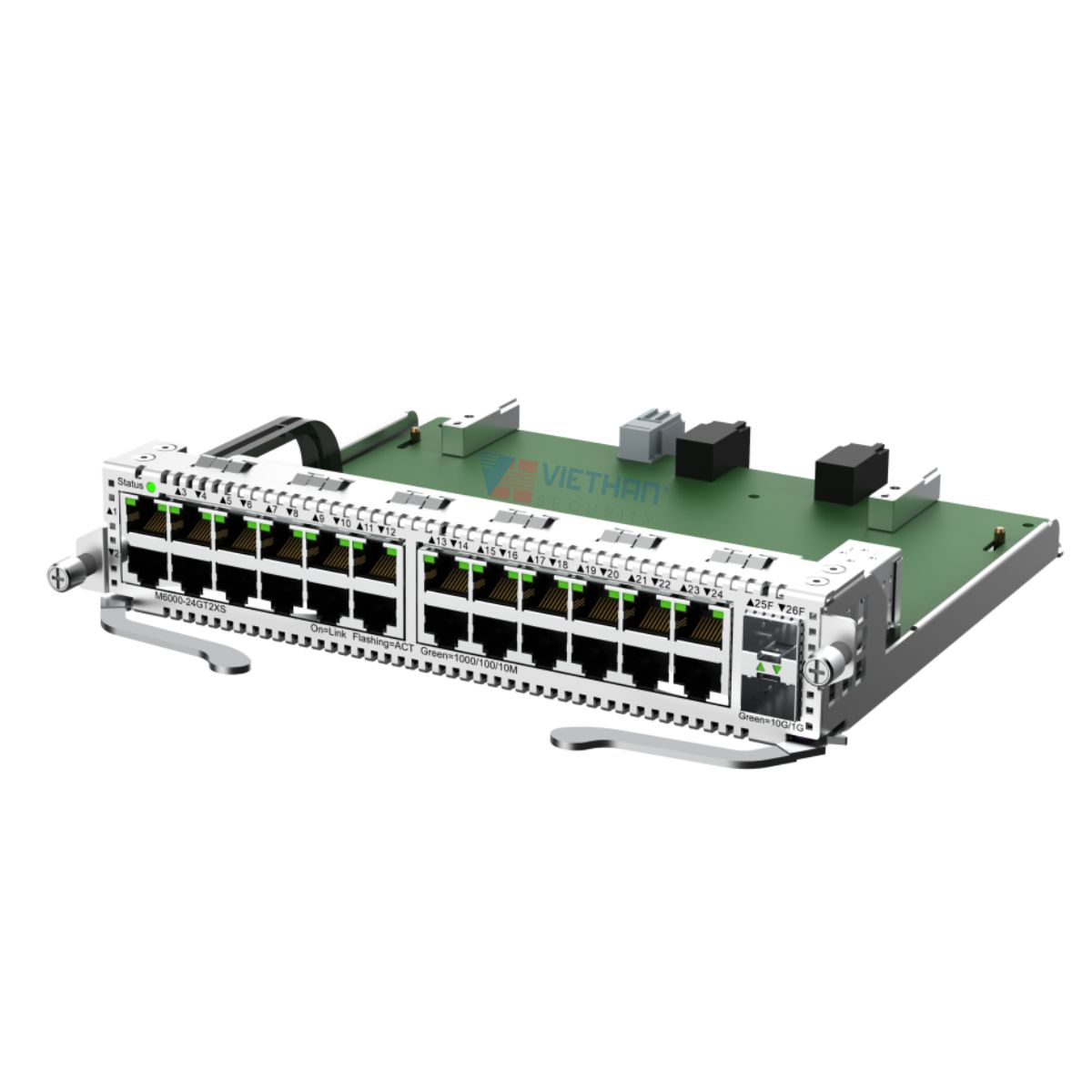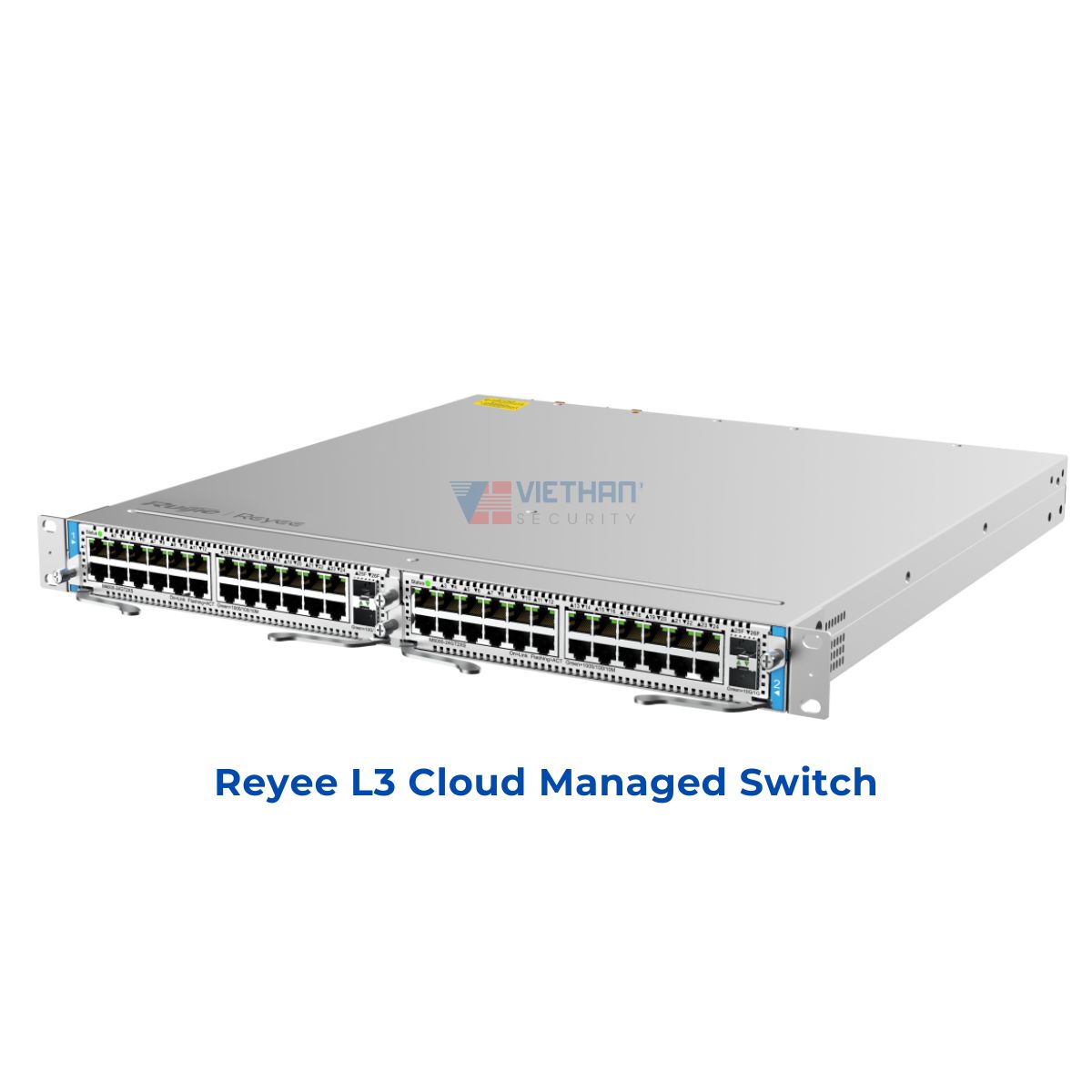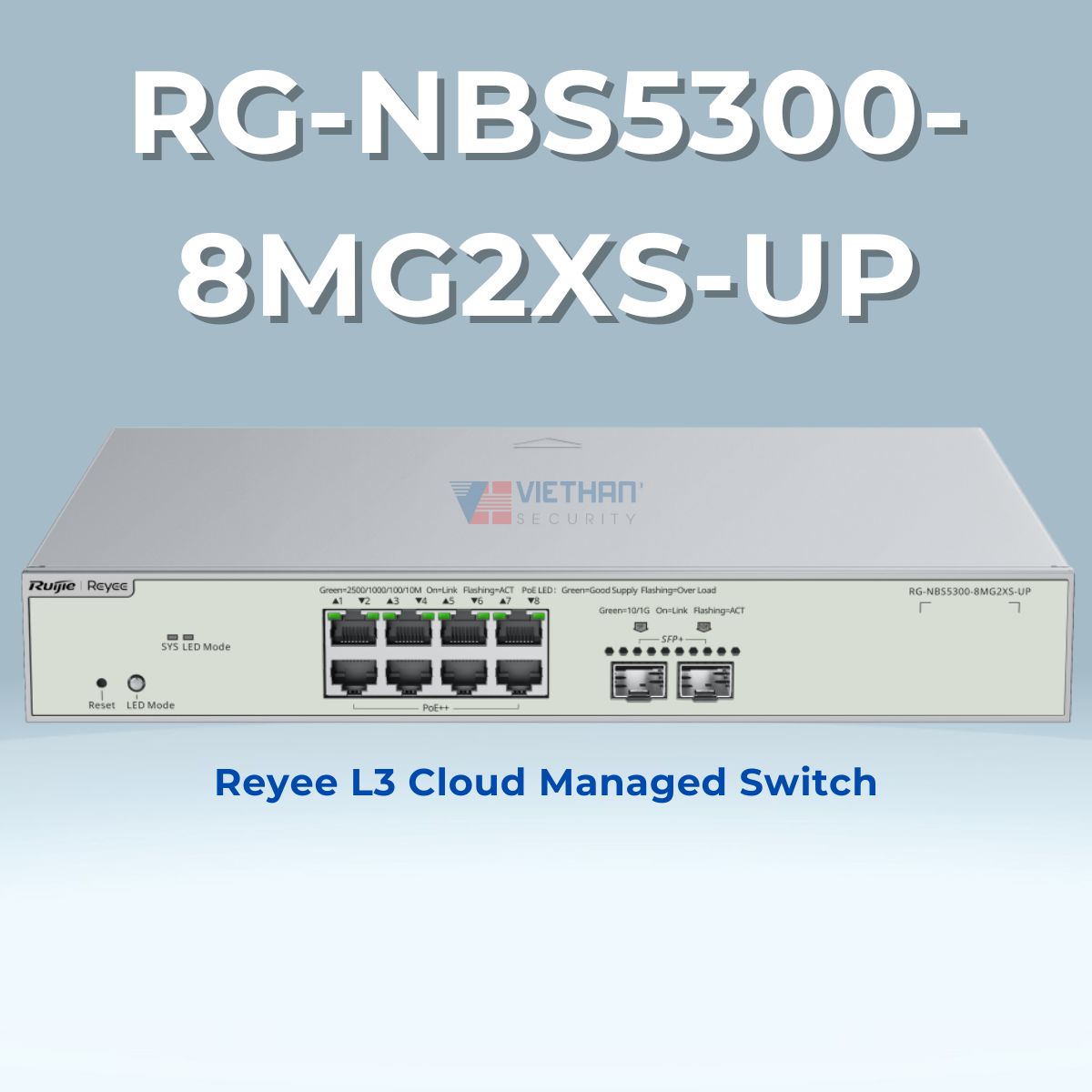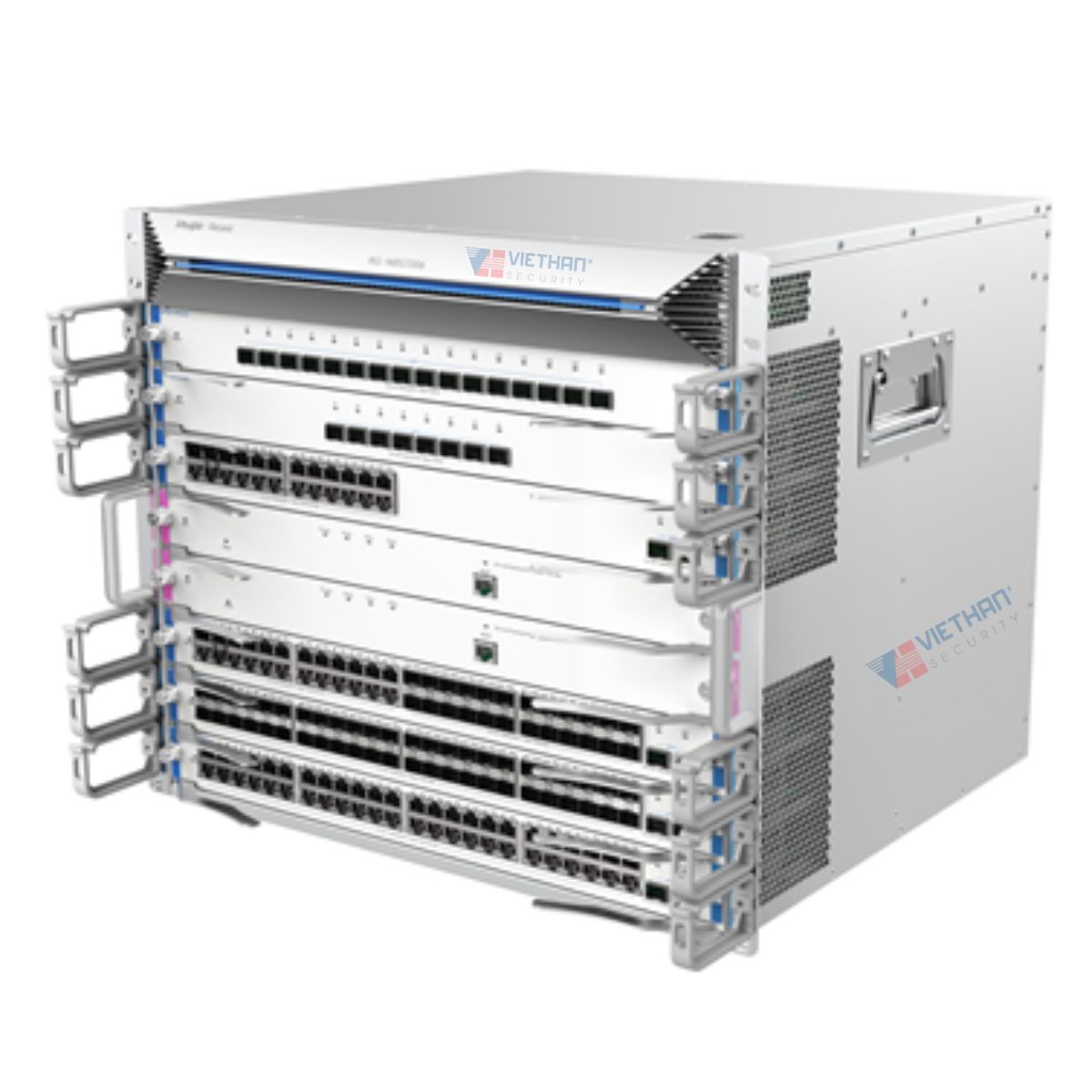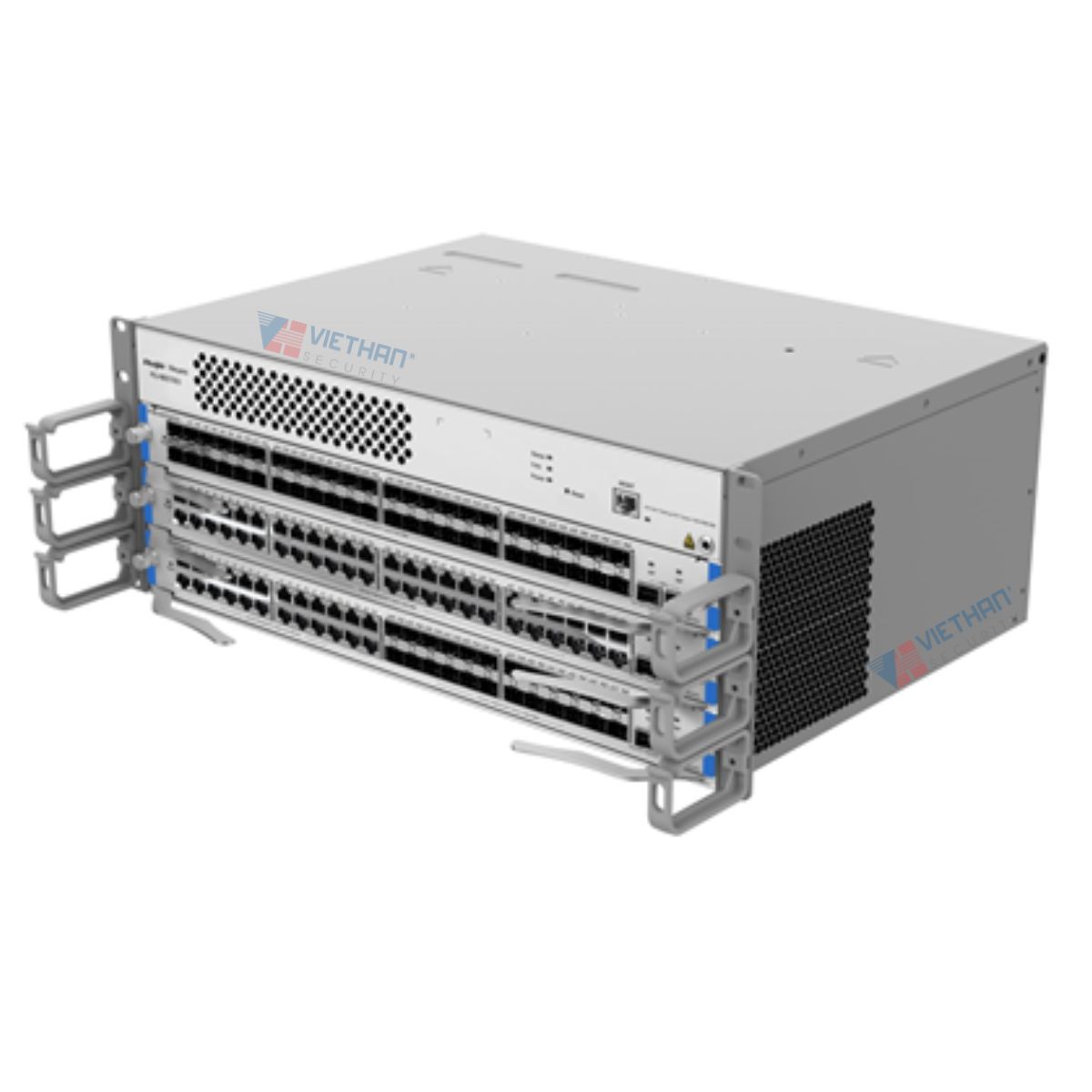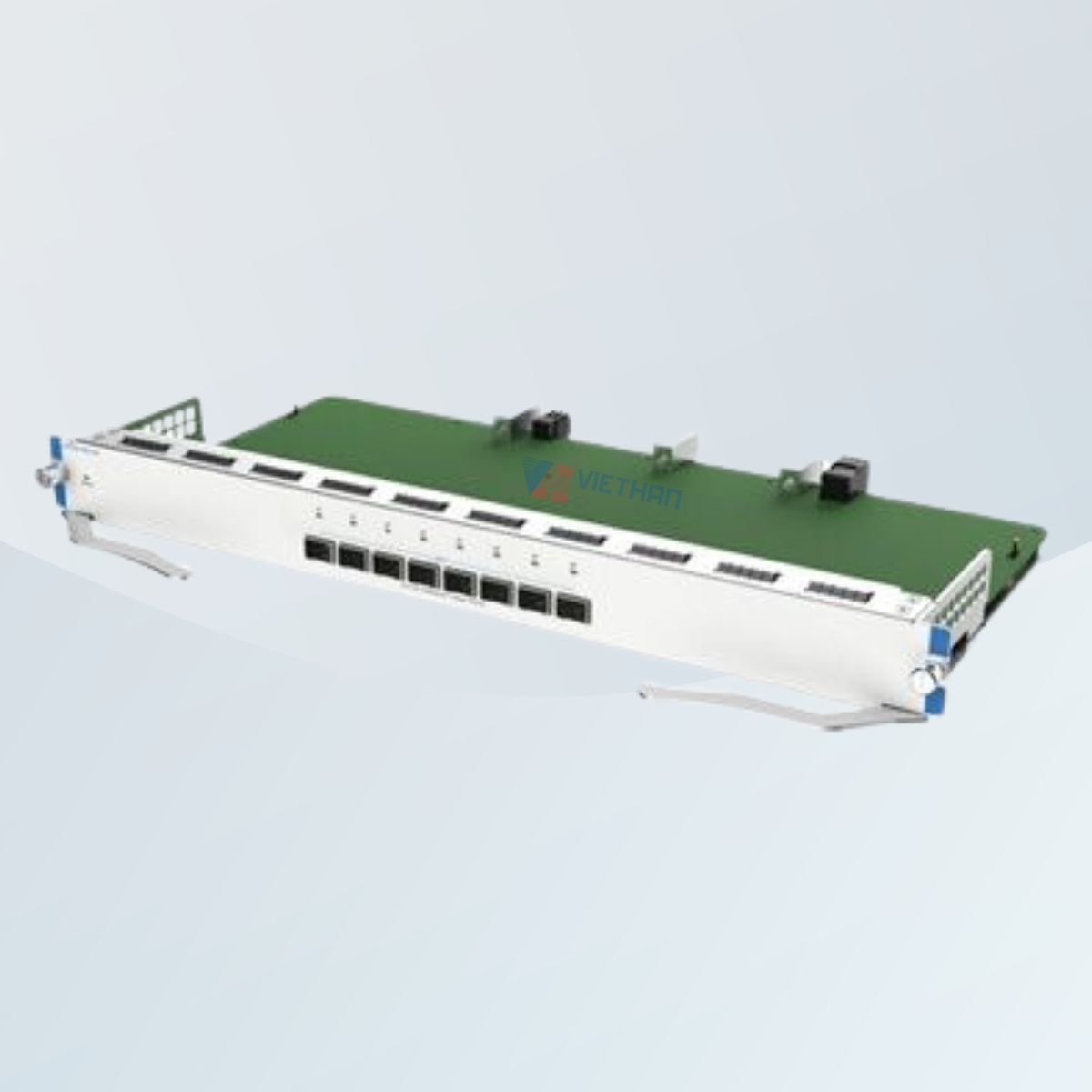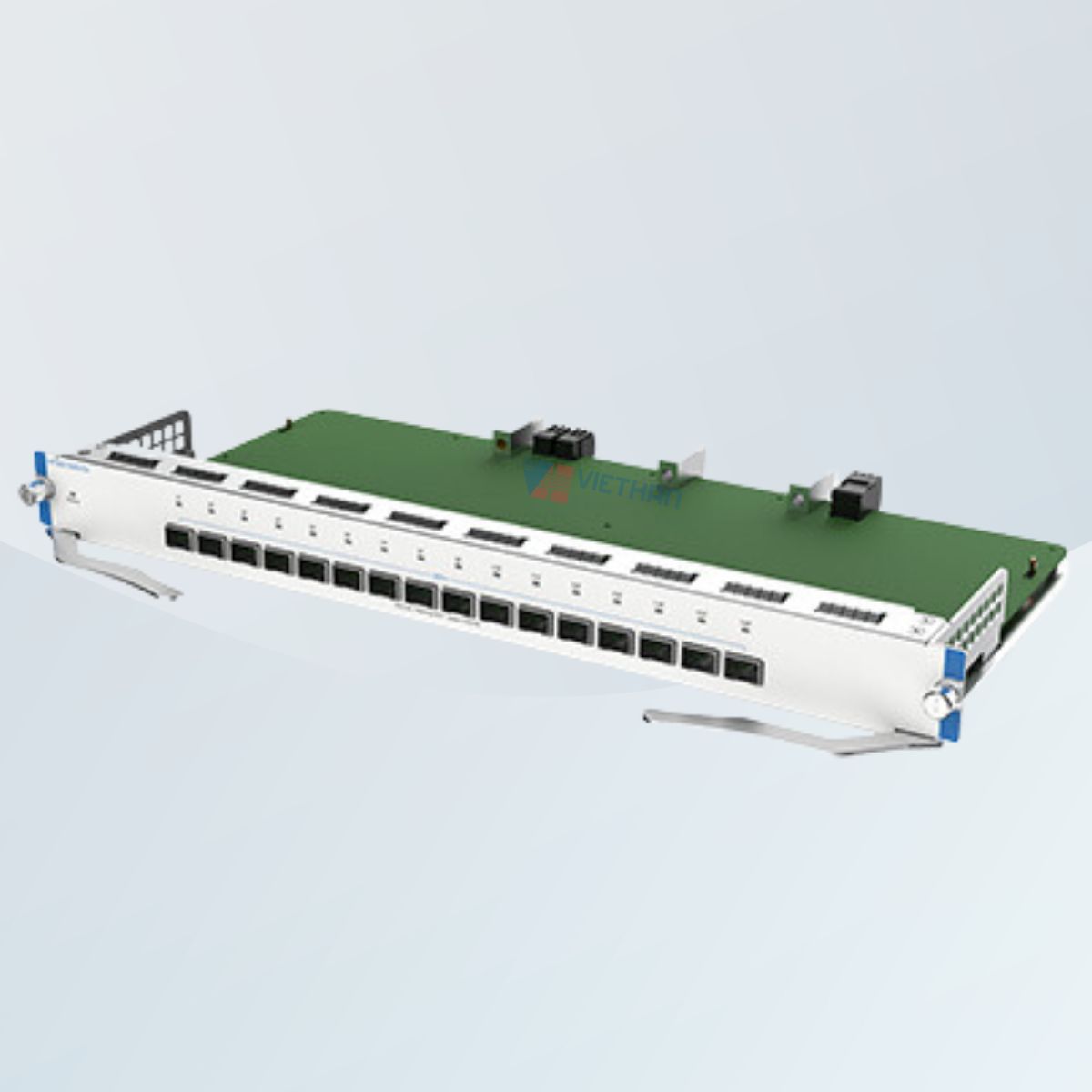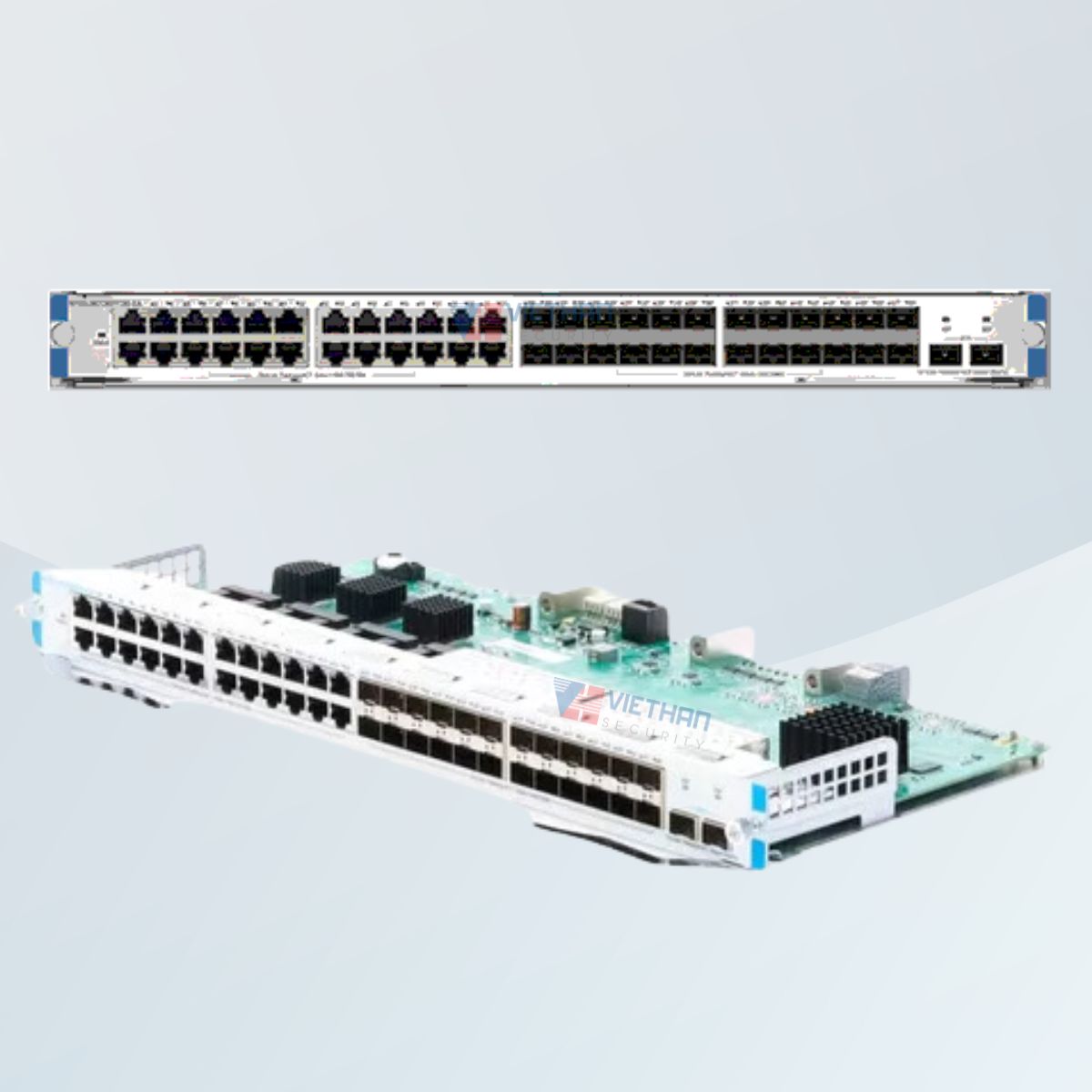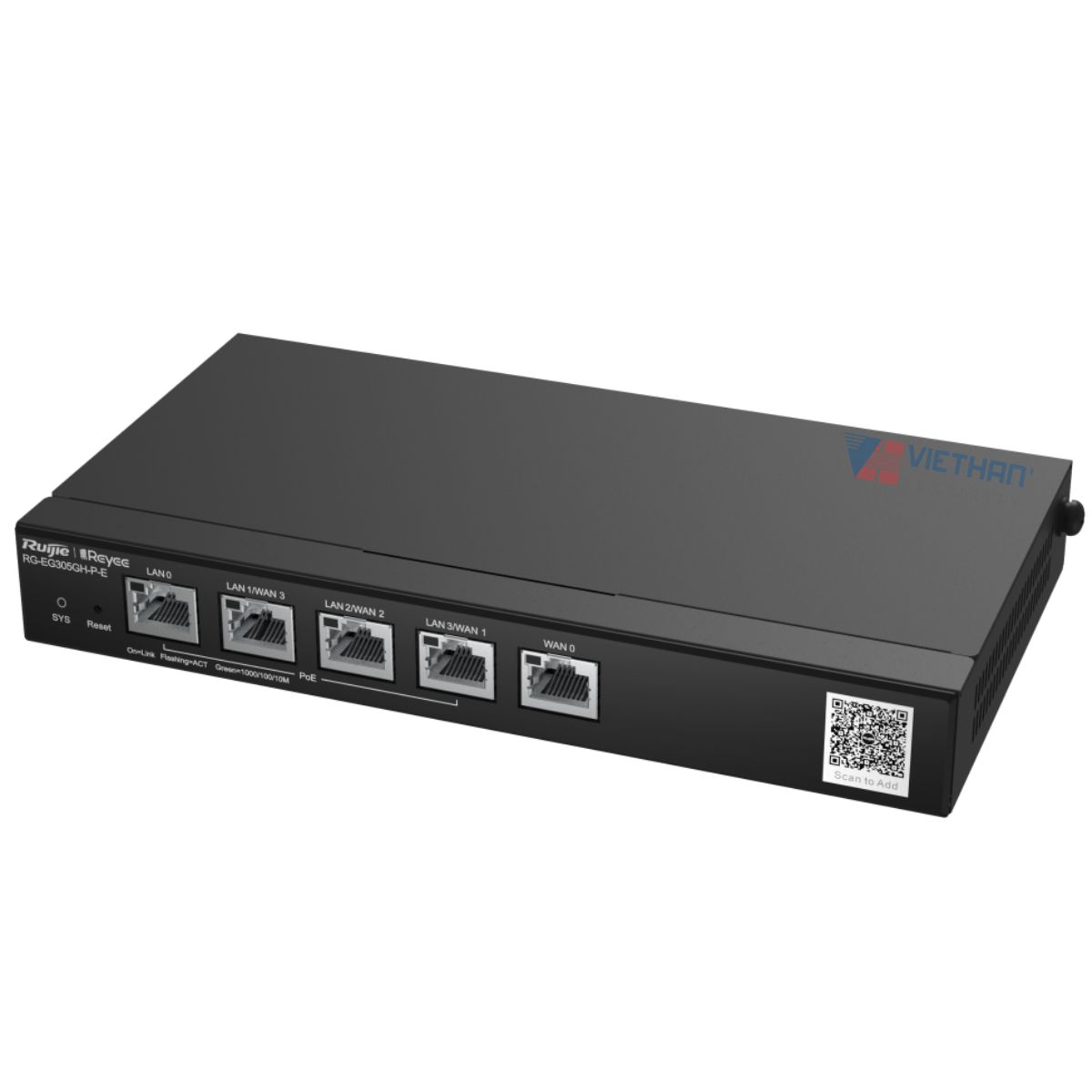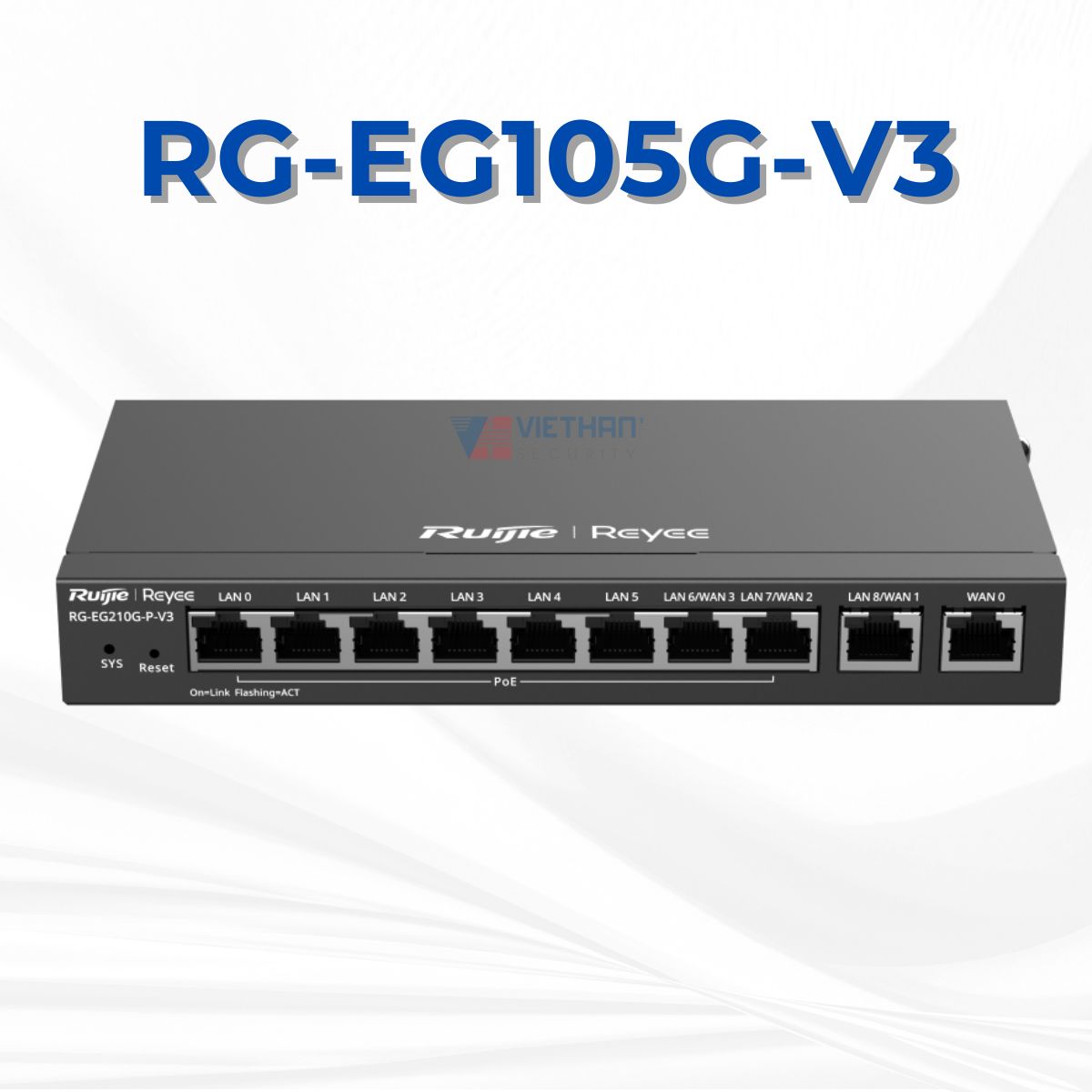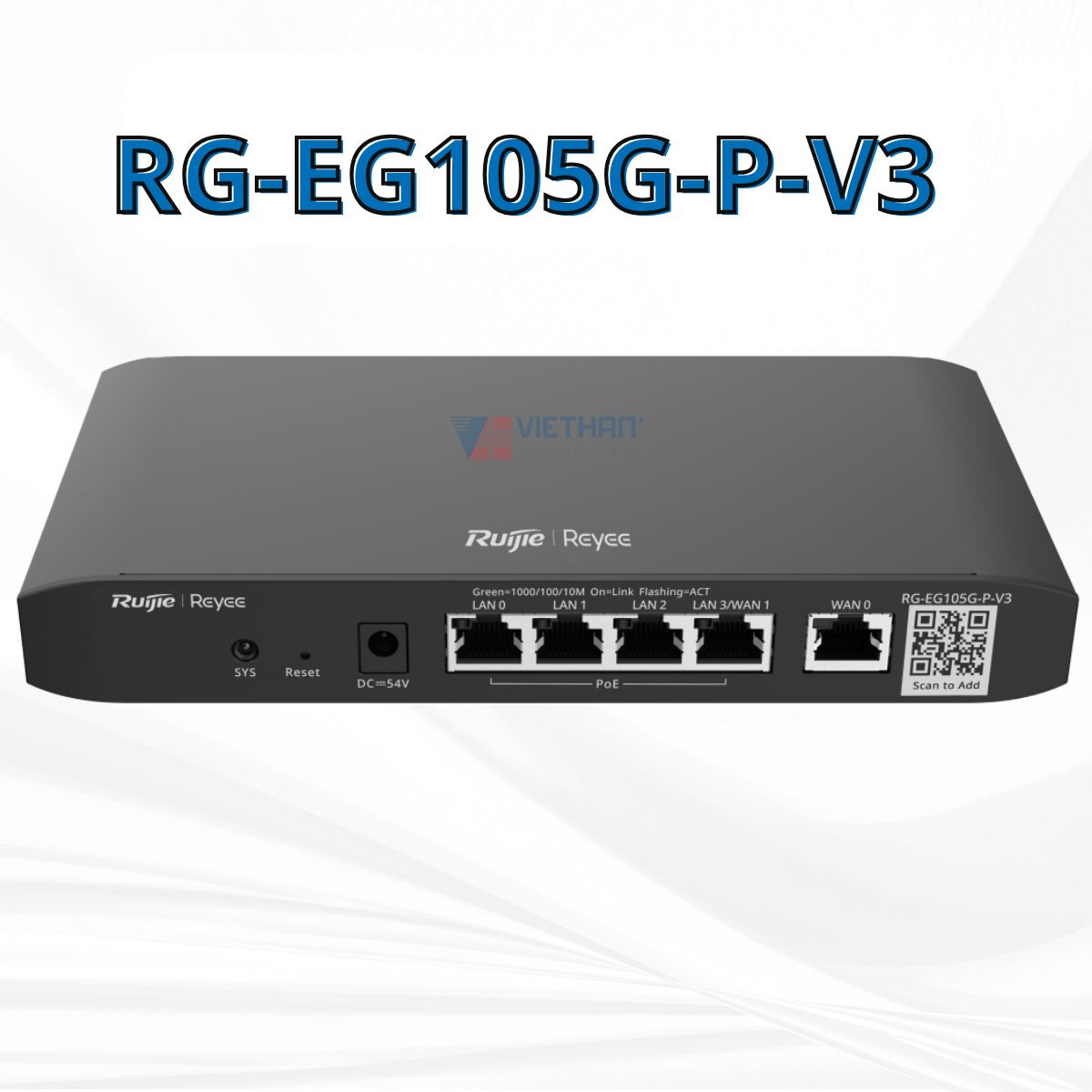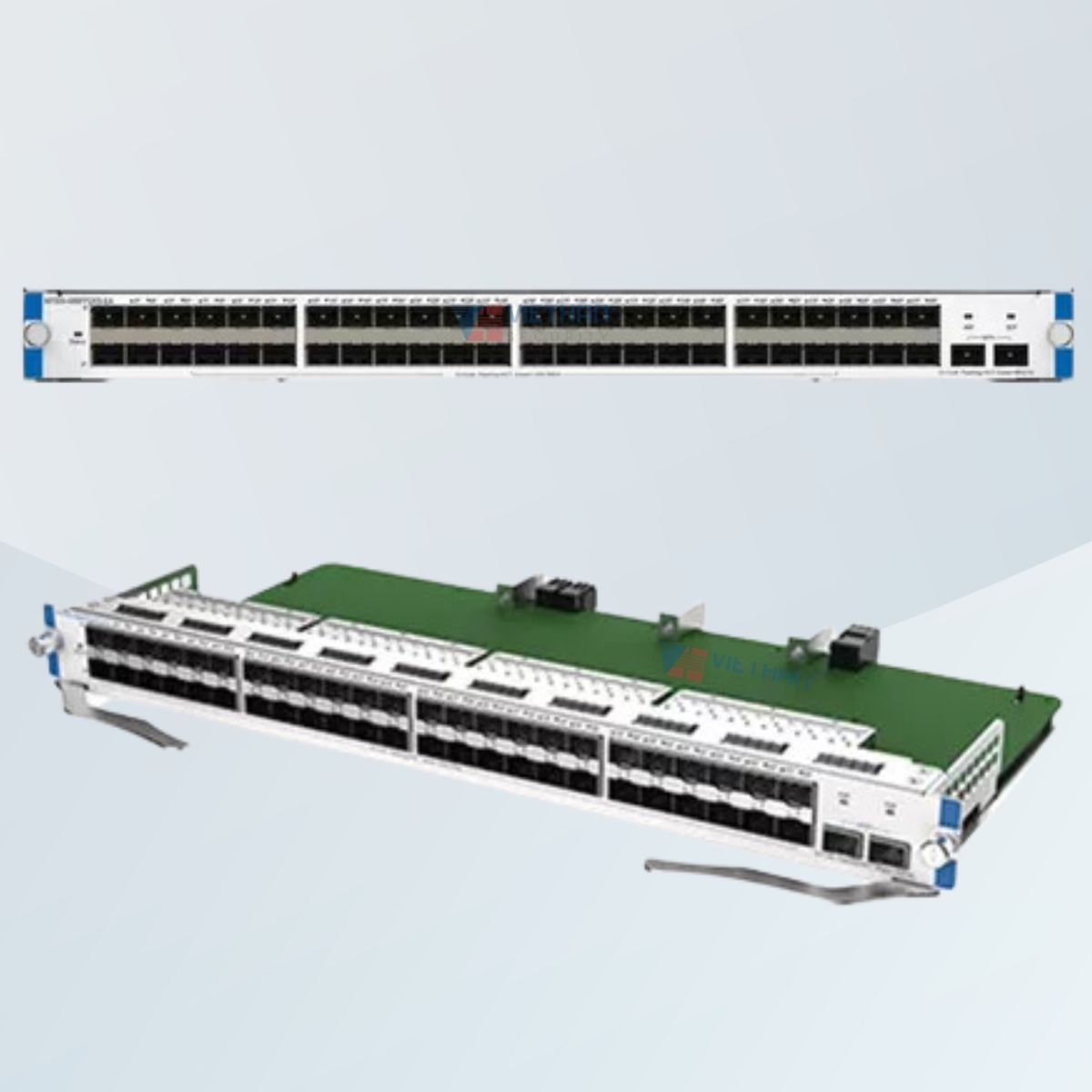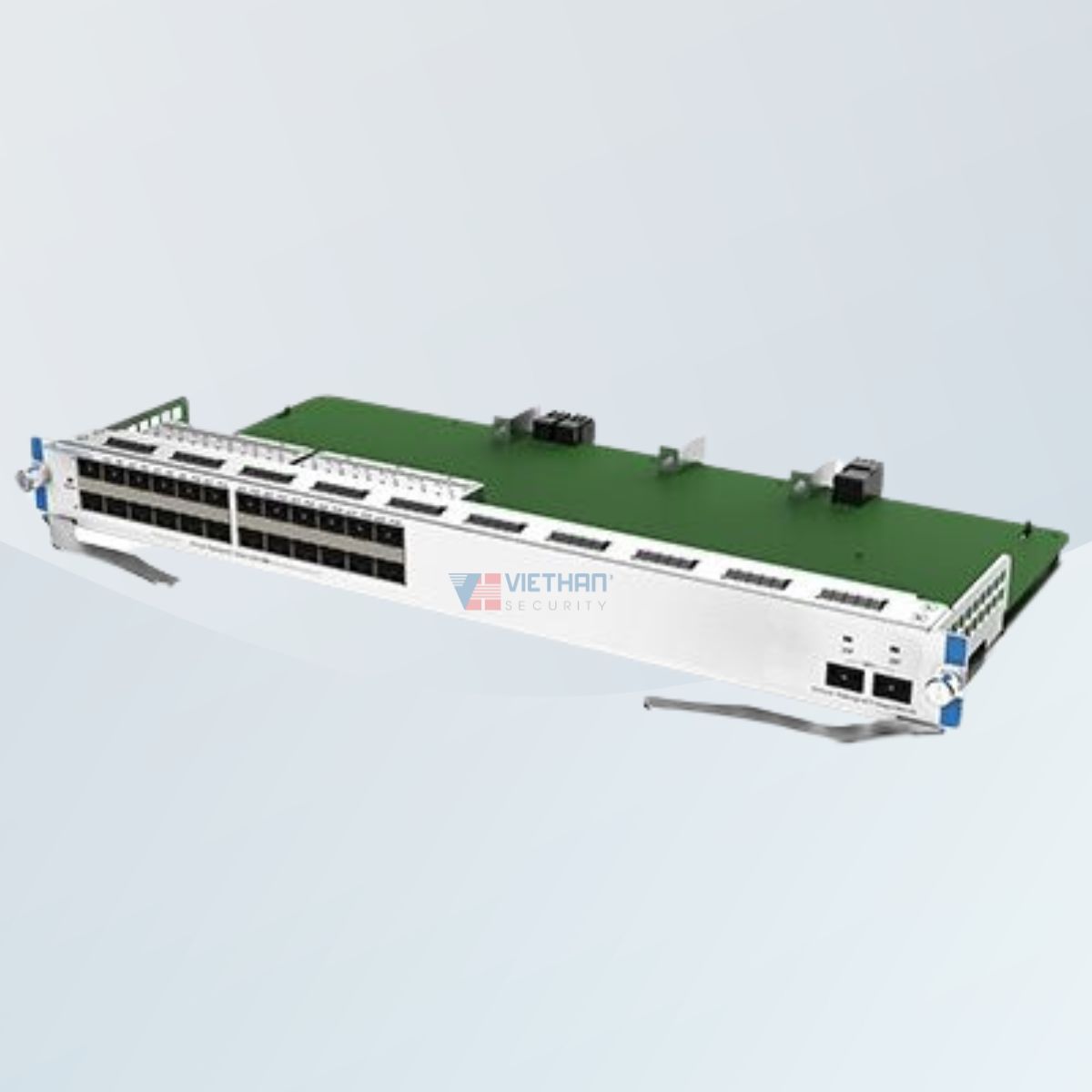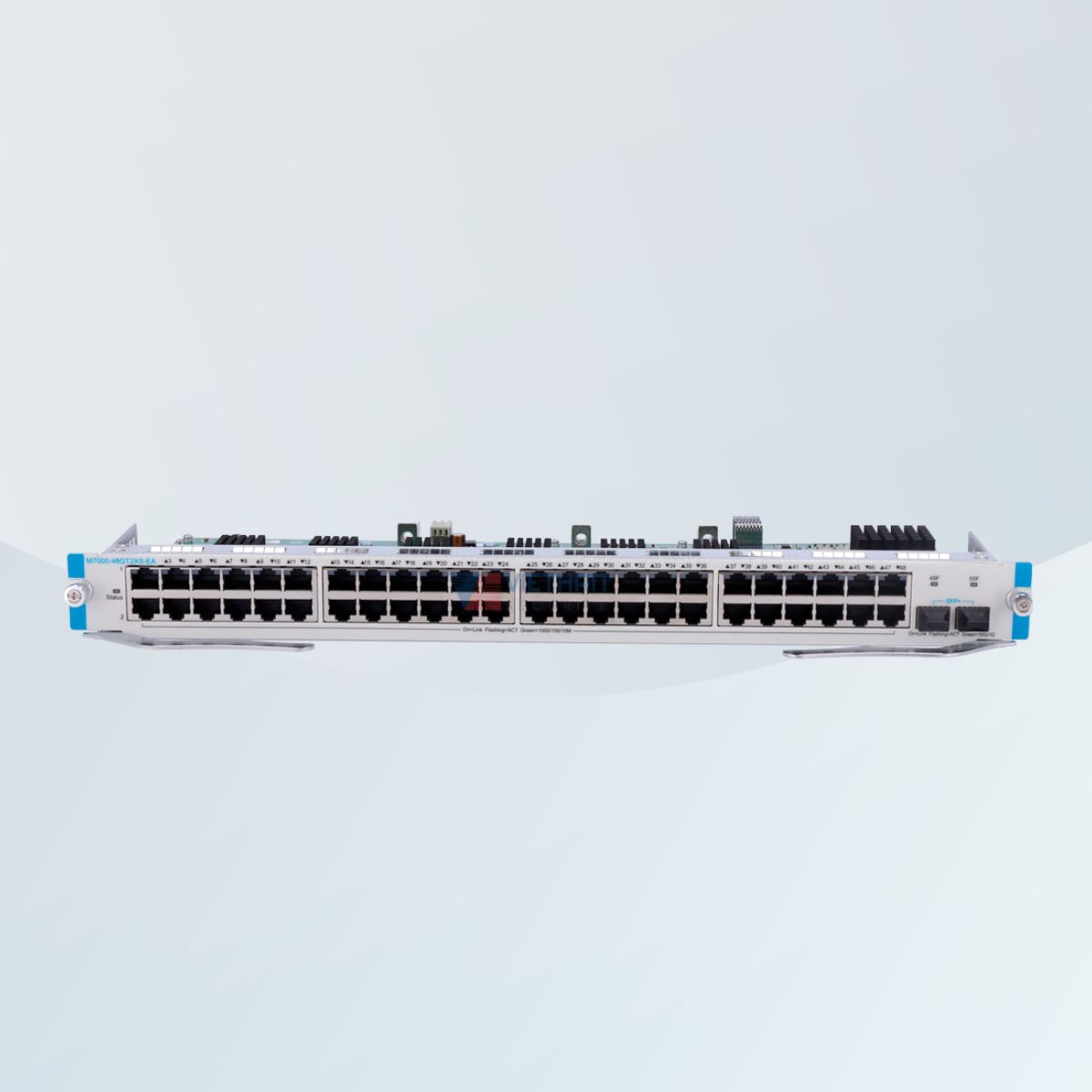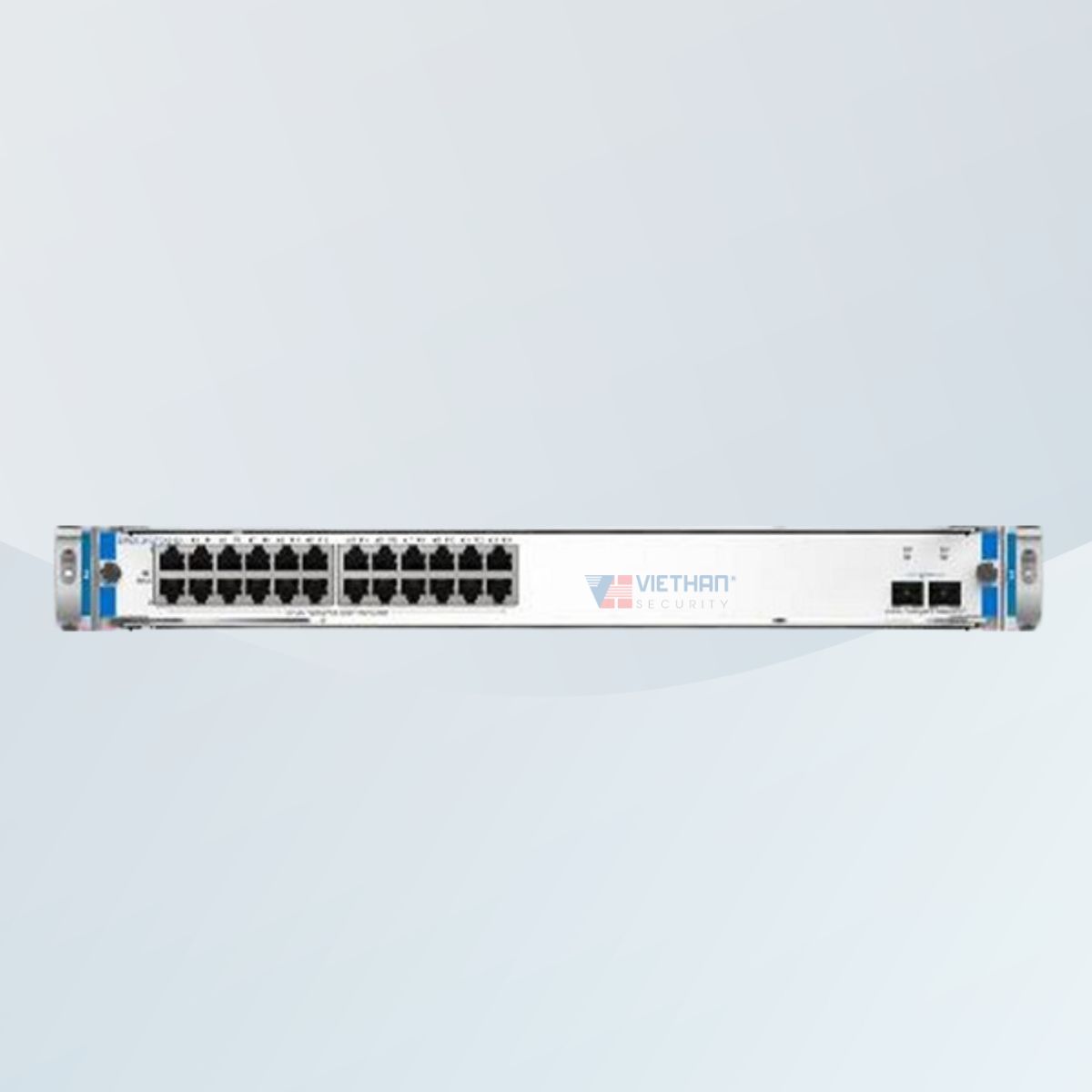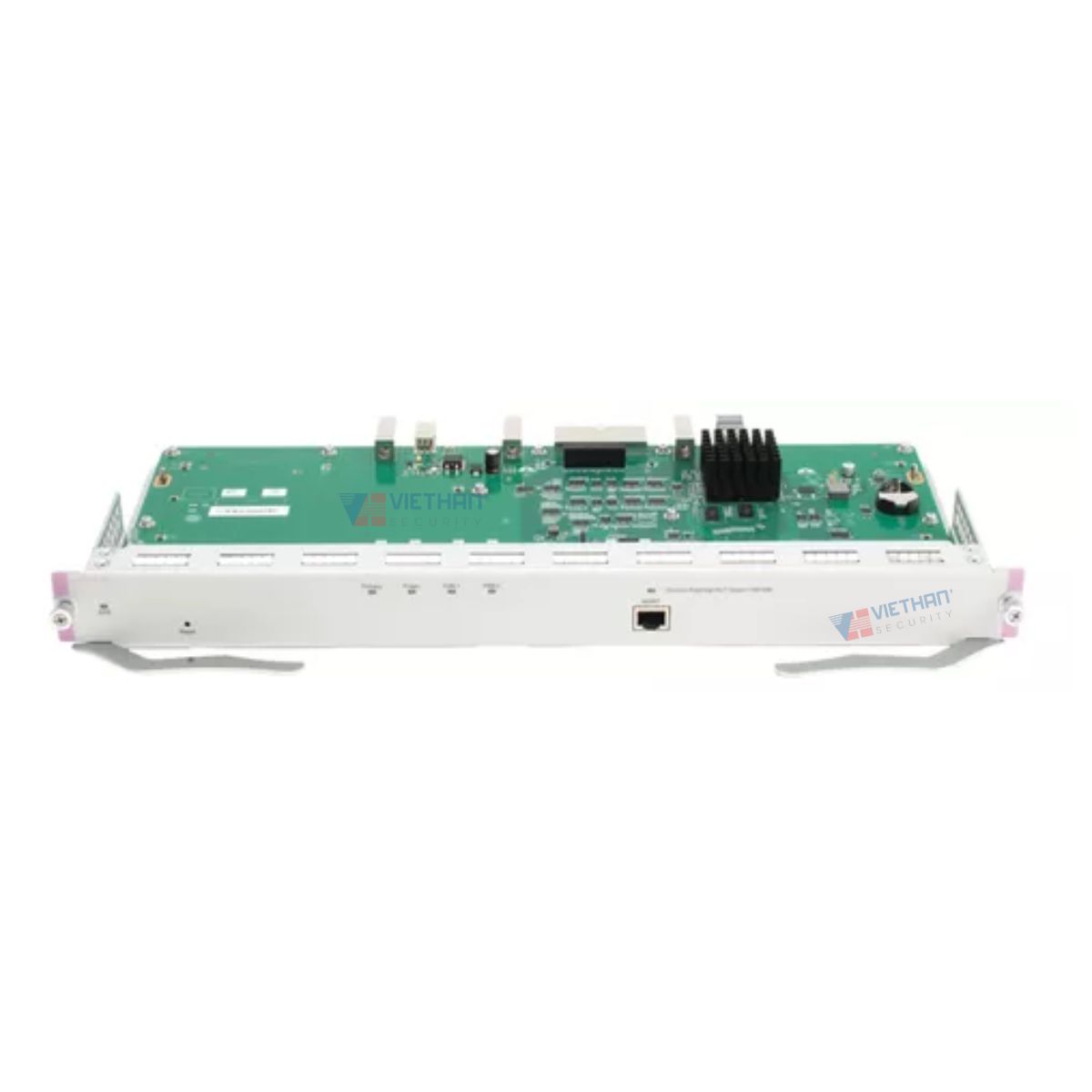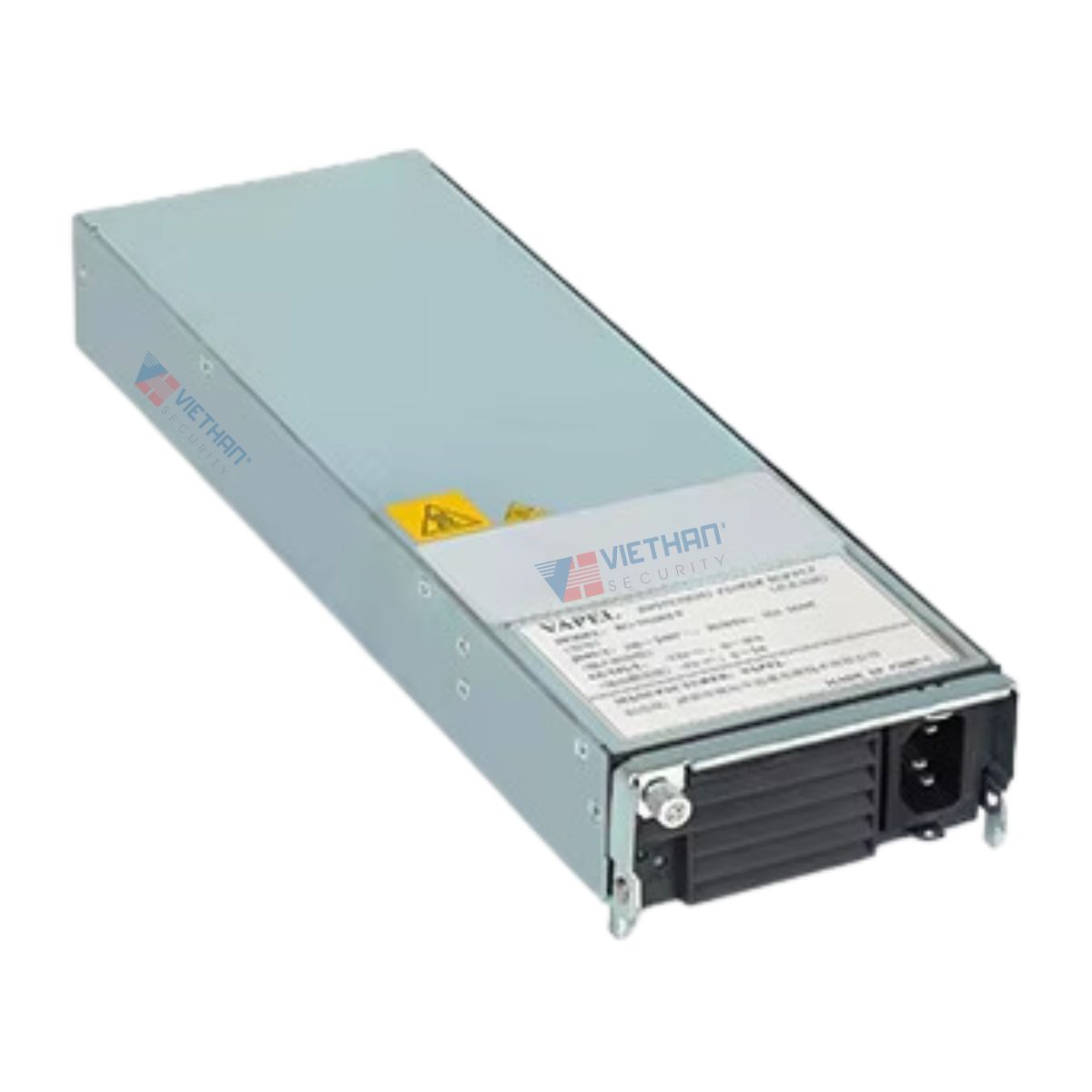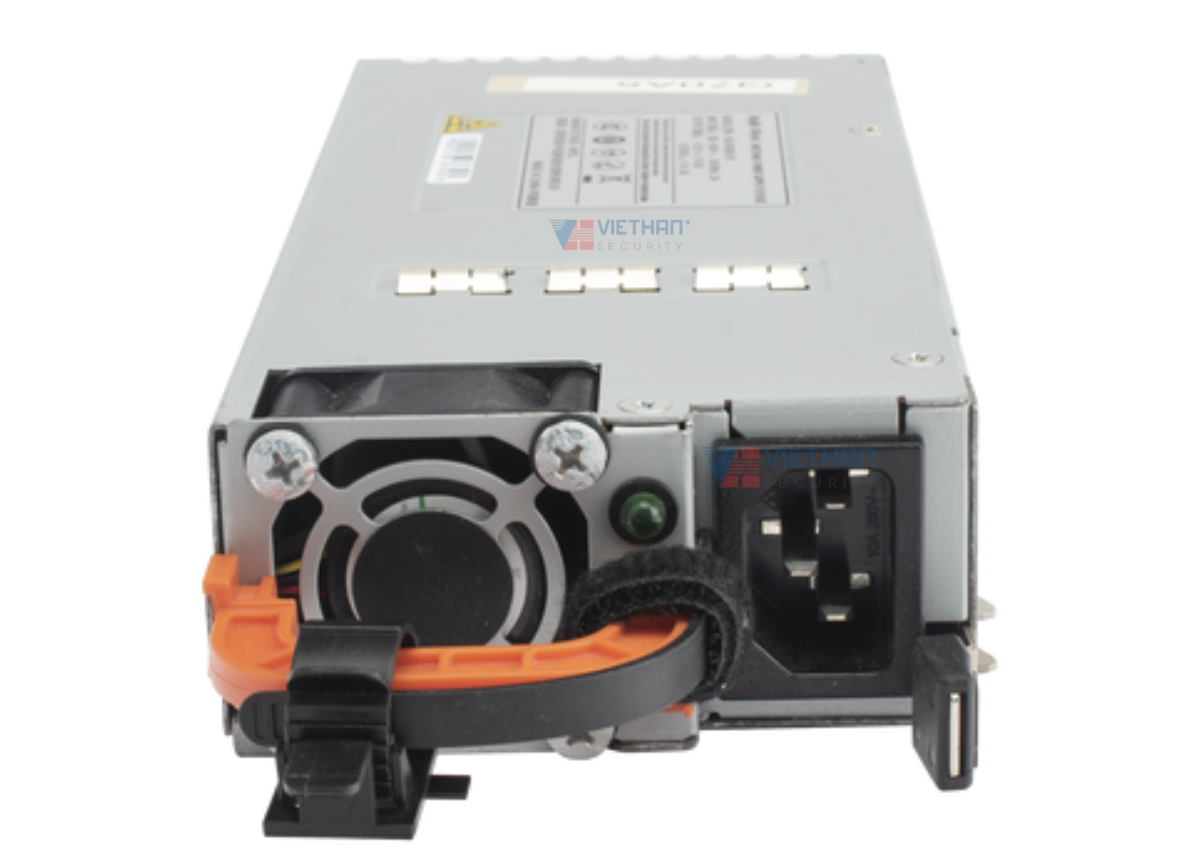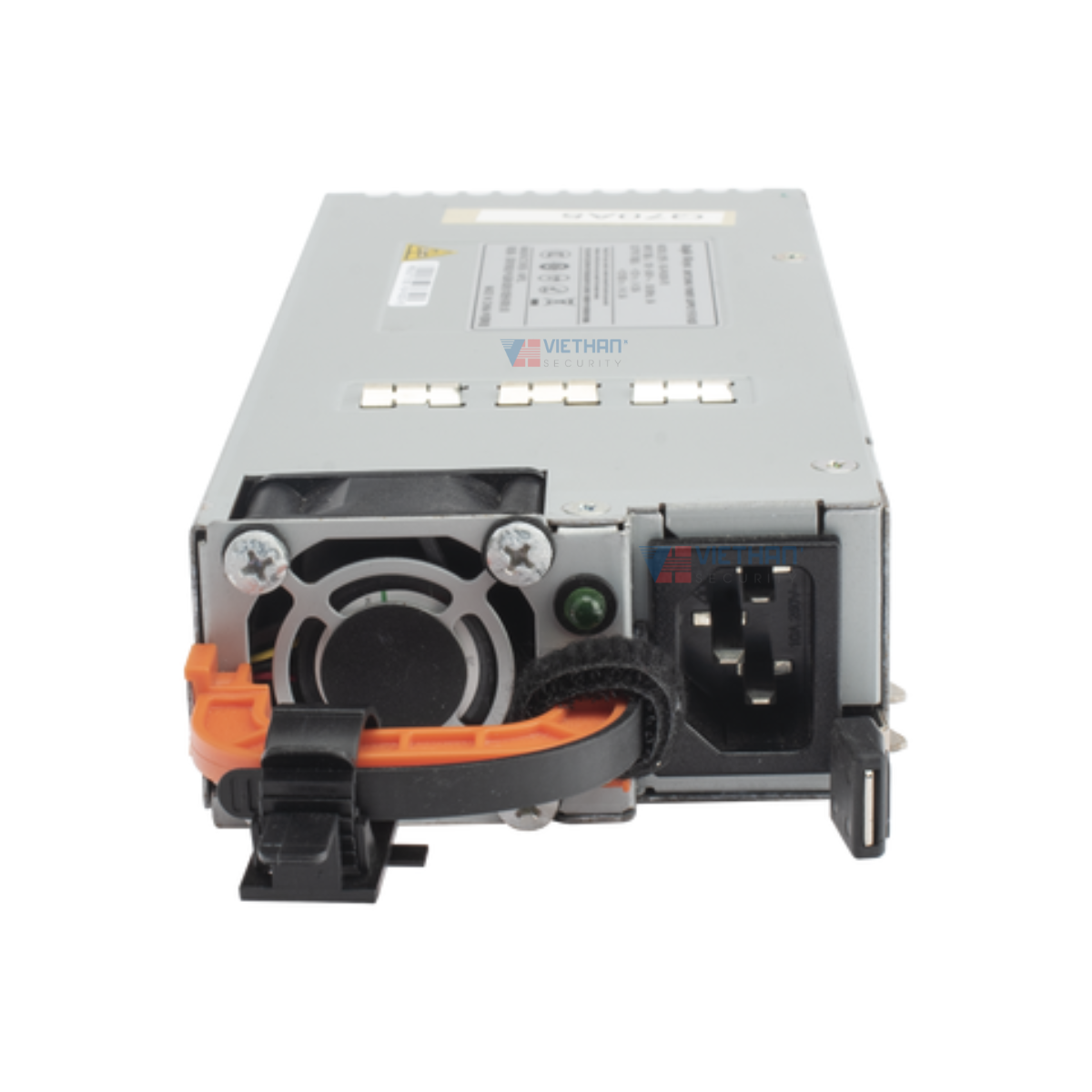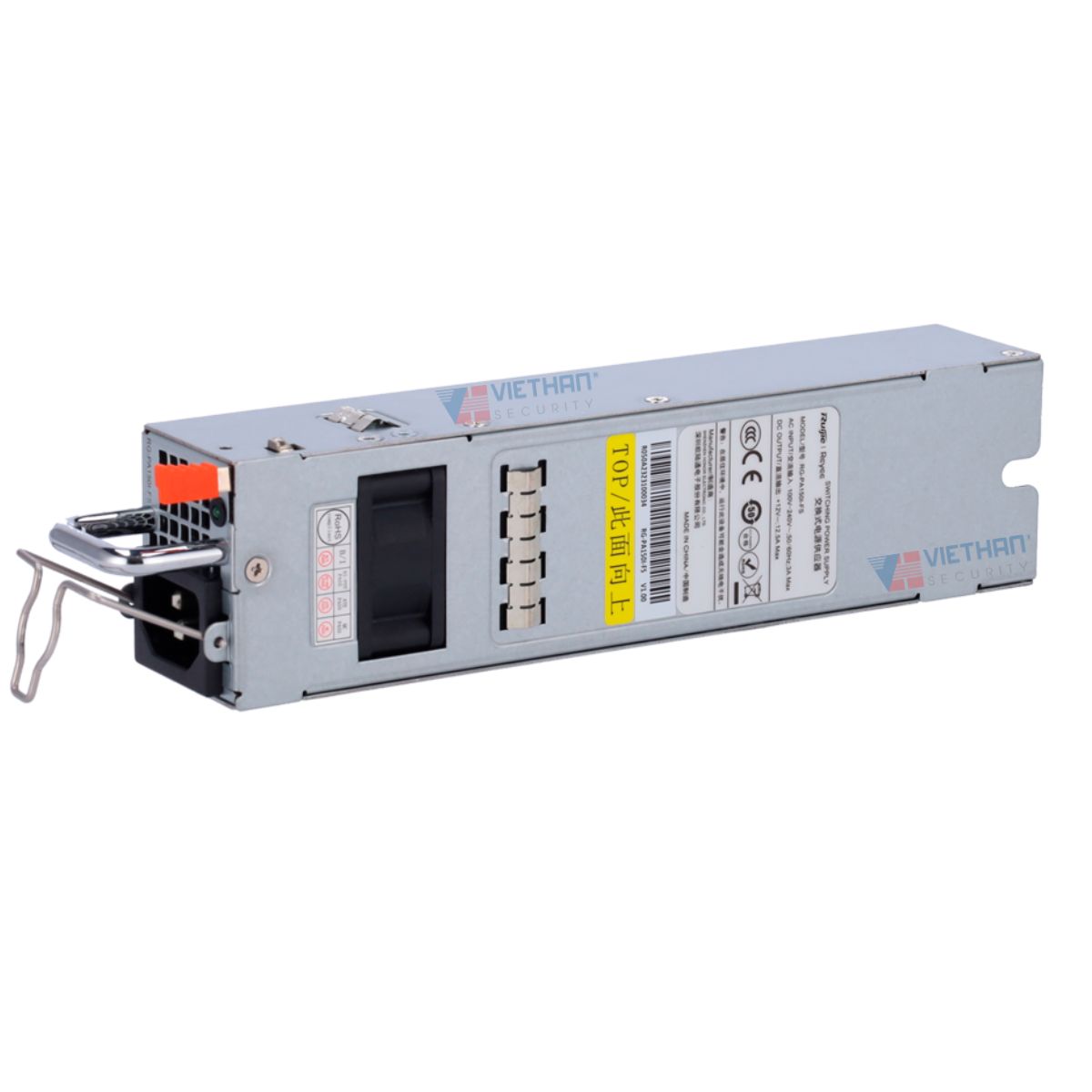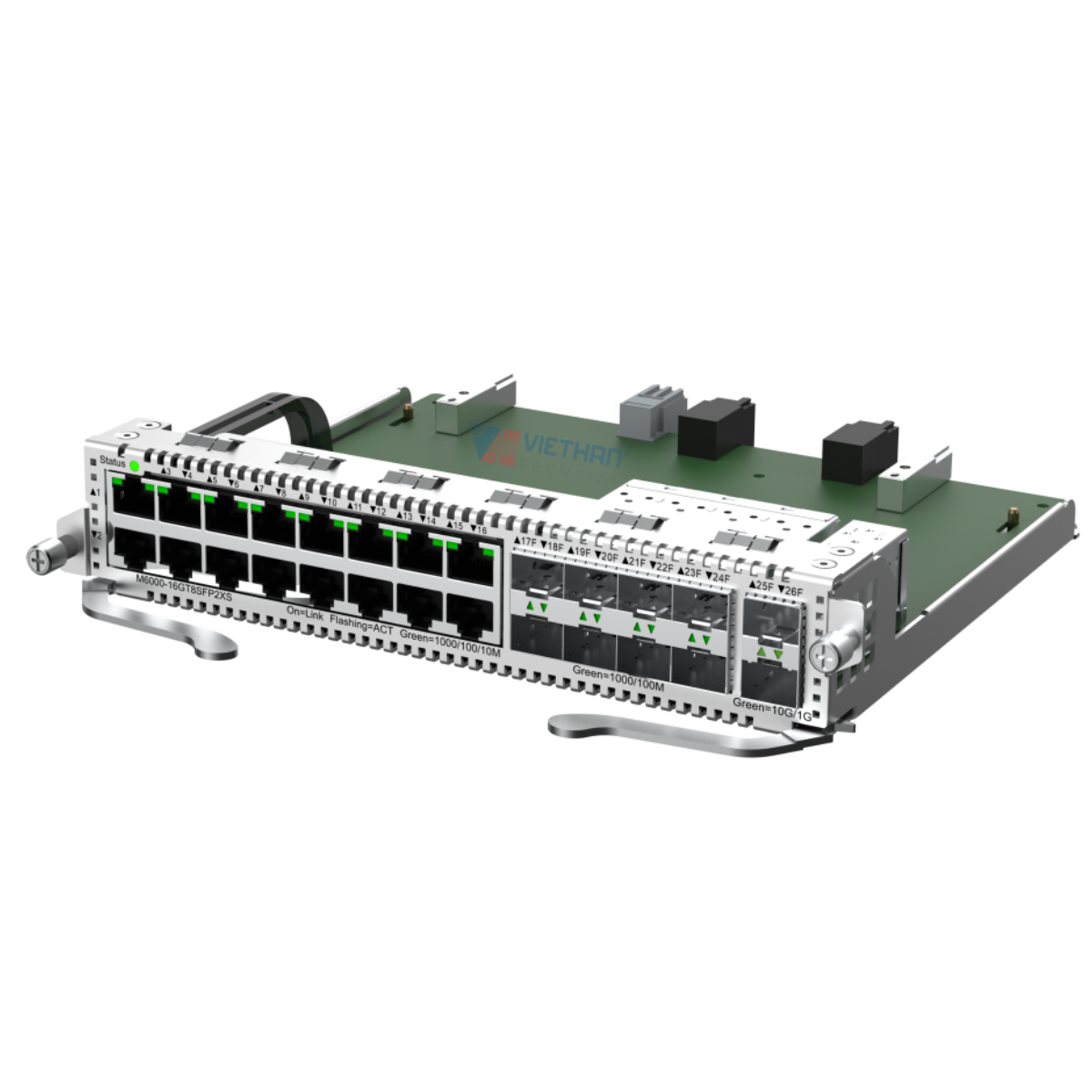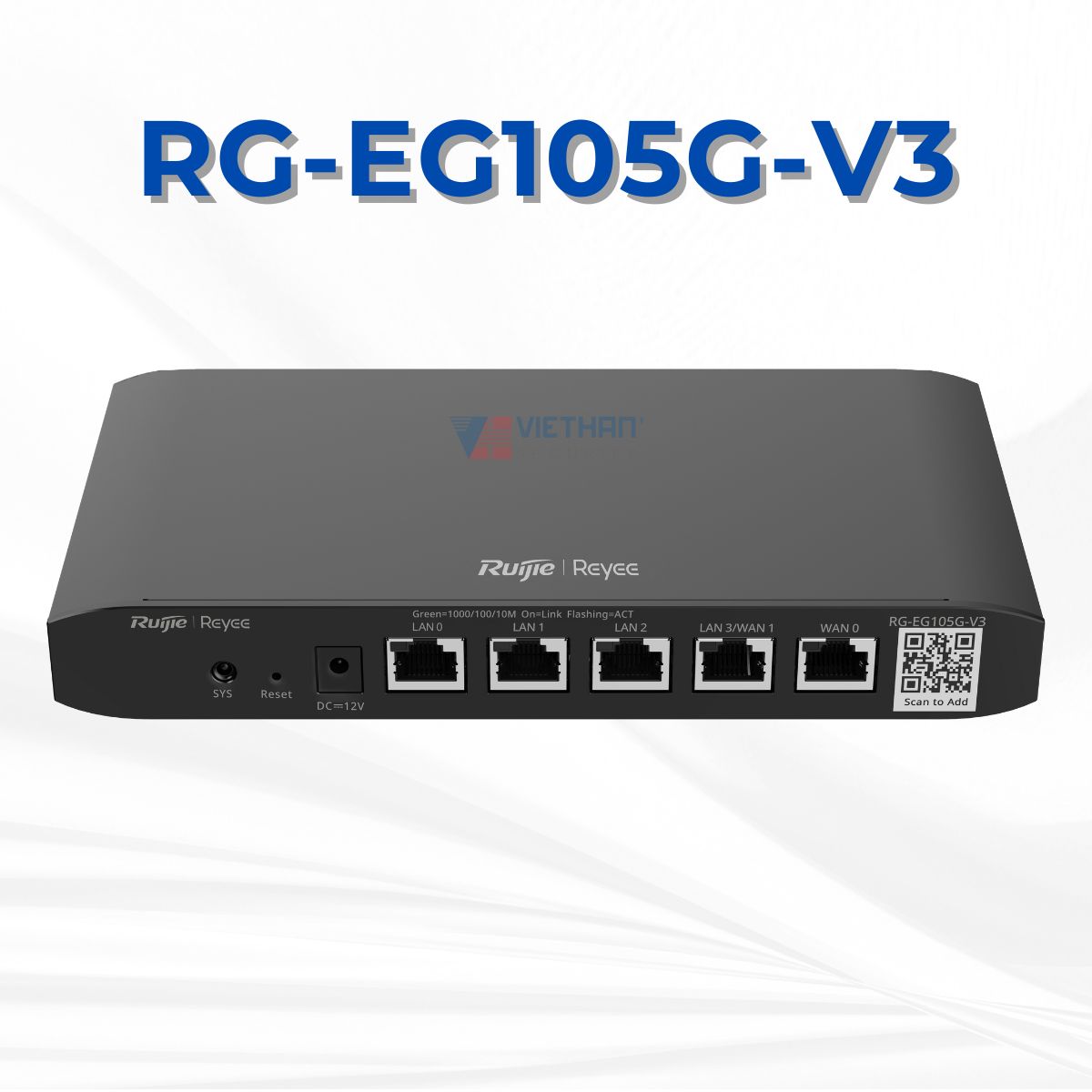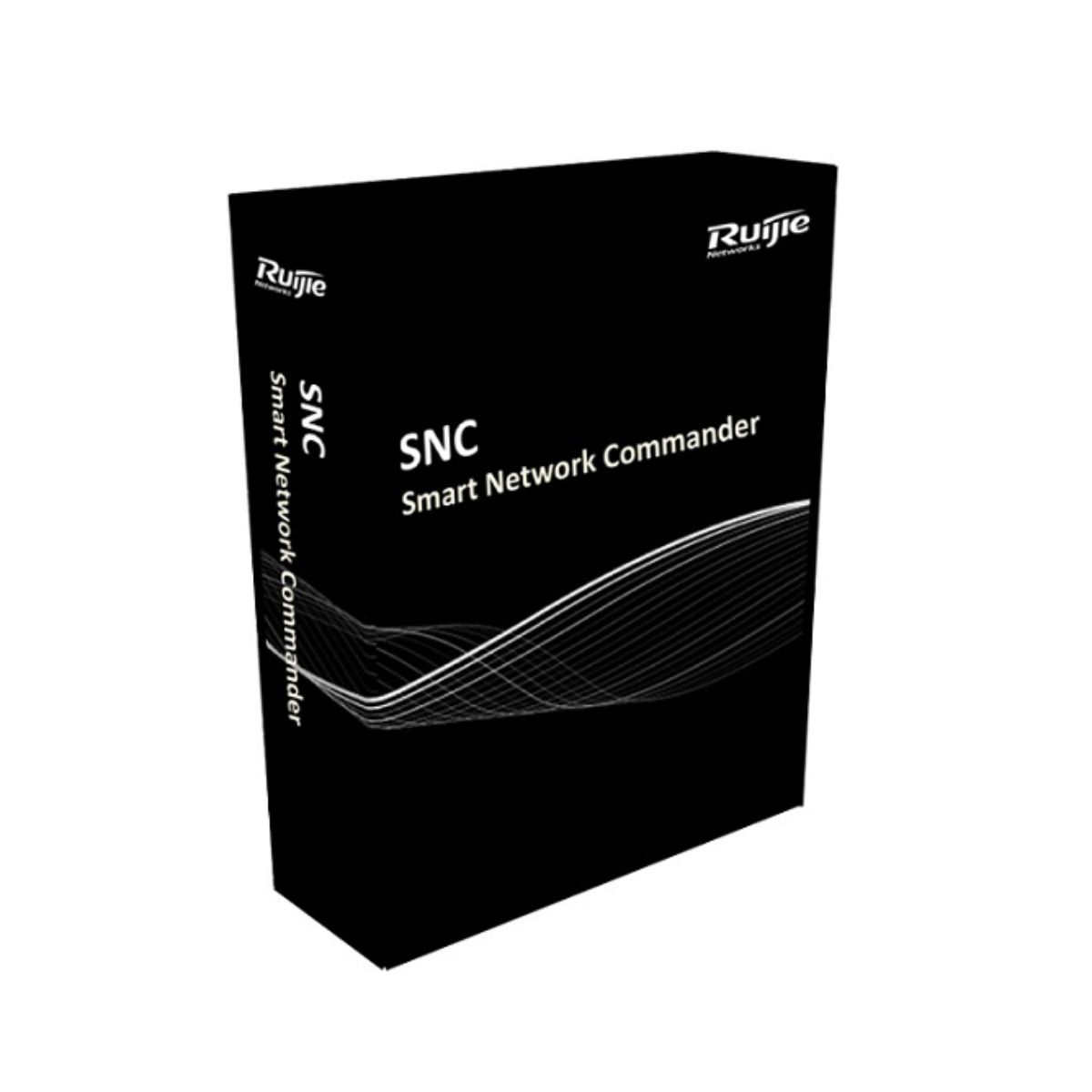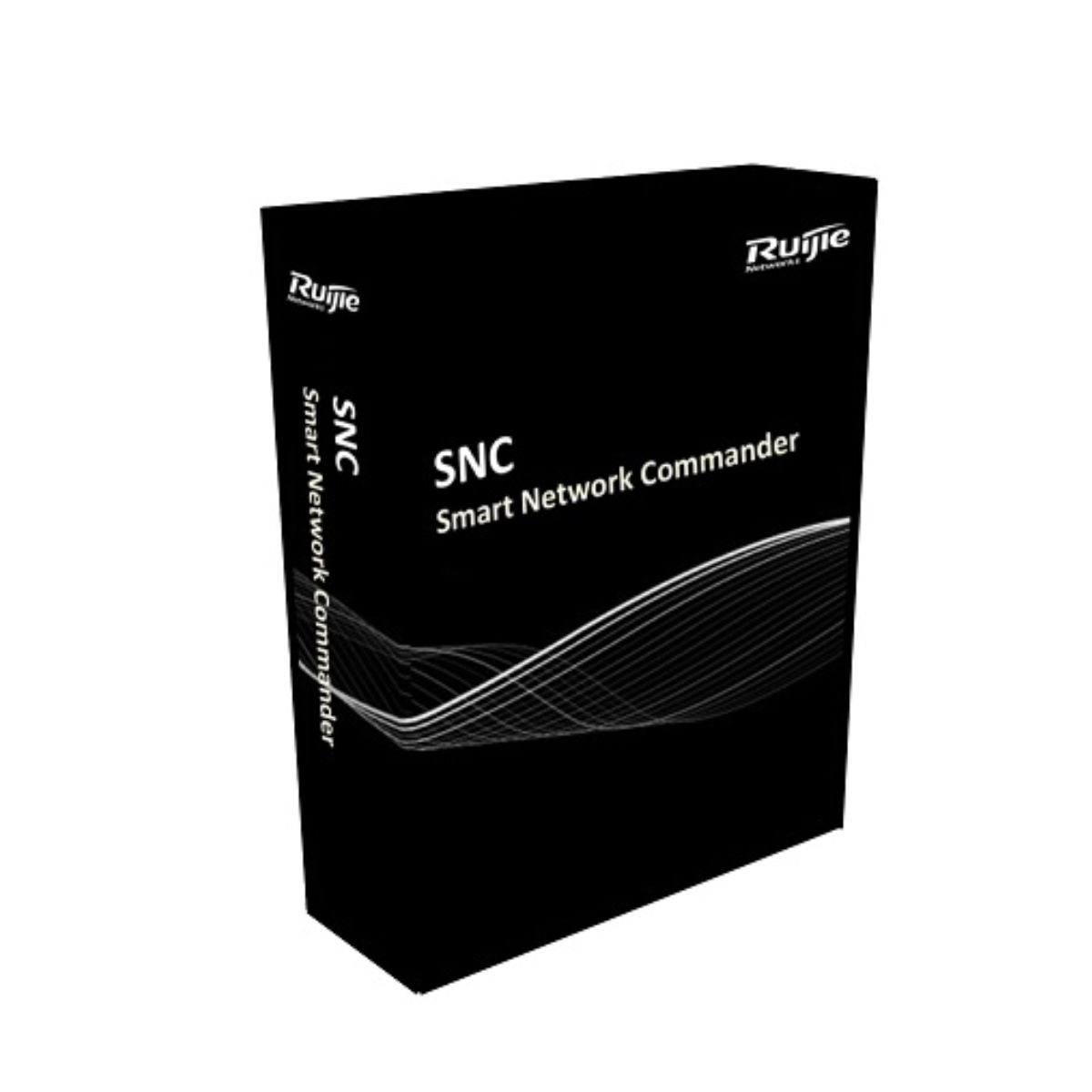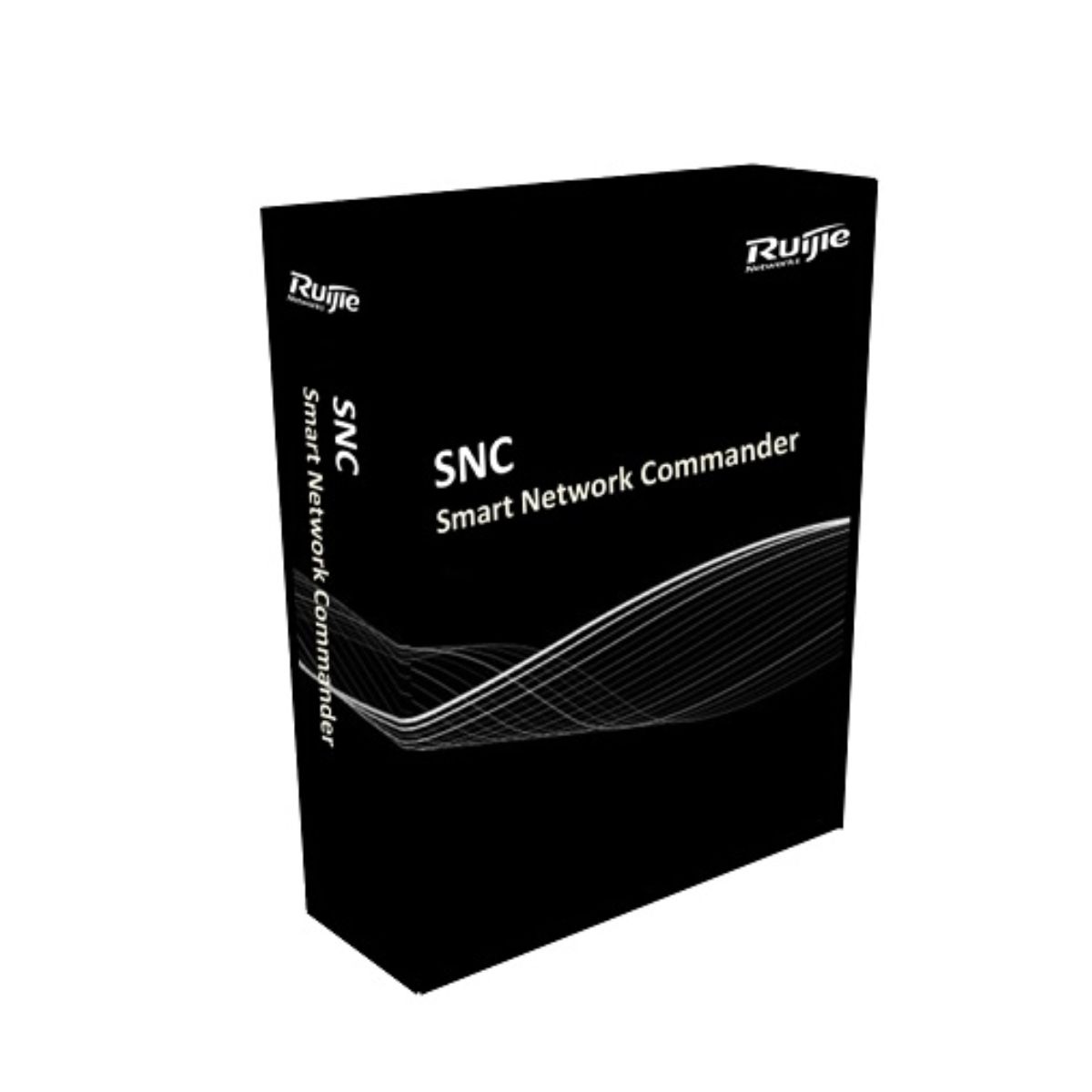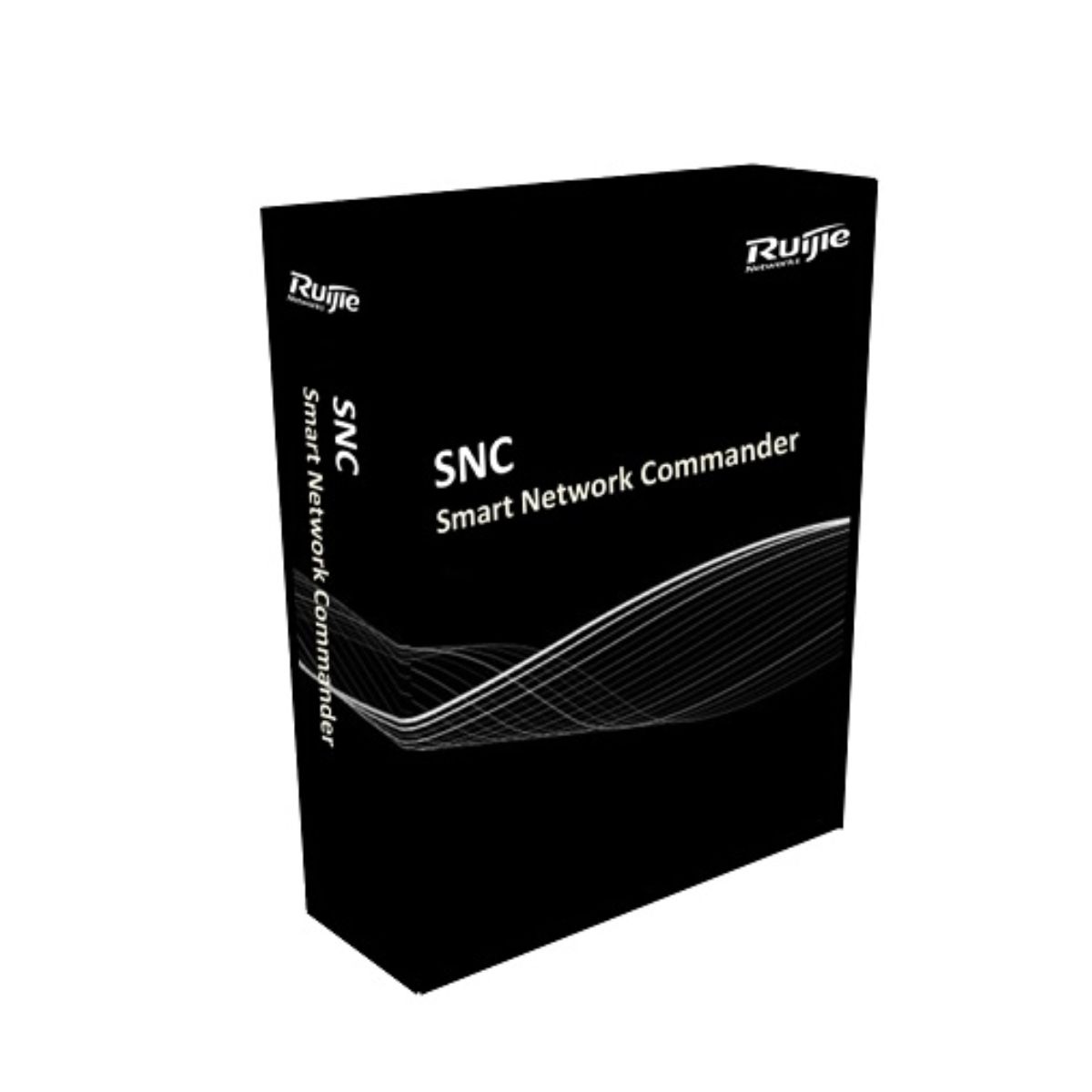| Model | RG-S2910C-48GT2XS-HP-E |
| Ports | 48 10/100/1000BASE-T ports (PoE/PoE+) 2 100/1000BASE-X SFP ports (combo) 2 1G/10GBASE-X SFP+ ports (noncombo) |
| Expansion Slots | 2 |
| Modular Power Slots | 2 |
| Fan Slots | Fixed |
| Expansion Modules | M2910-01XS M2910-01XT M2910-04XS |
| Management Ports | 1 console port 1 USB 2.0 port |
| Switching Capacity | 264Gbps |
| Packet Forwarding Rate | 132Mpps |
| Max. Number of 10GE Ports | 4 |
| PoE | IEEE802.3af and 802.3at power supply standards; Automatic/energy-saving (default) power supply mode; Hot startup and uninterrupted power supply; Port priority; PoE devices support stacking |
| Port Buffer | 1.5MB |
| RAM | 512MB |
| ARP Table | 1,000 |
| MAC Address | 16K |
| Routing Table Size (IPv4/IPv6) | 500 (IPv4/IPv6) |
| ACL Entries | In: 1,500 Out: 500 |
| VLAN | 4K 802.1q VLANs, Port-based VLAN, MAC-based VLAN, Protocol-based VLAN, Private VLAN, Voice VLAN, QinQ, IP subnet-based VLAN, GVRP, Guest VLAN |
| QinQ | Basic QinQ, Flexible QinQ, N:1 VLAN switching, 1:1 VLAN switching |
| Link Aggregation | AP, LACP (maximum 8 ports can be aggregated), Cross devices AP, Flow balance |
| Port Mirroring | Many-to-one mirroring, One-to-many mirroring, Flow-based mirroring, Over devices mirroring , VLAN-based mirroring, VLAN-filtering mirroring, AP-port mirroring, RSPAN, ERSPAN |
| Spanning Tree Protocols | IEEE802.1d STP, IEEE802.1w RSTP, Standard 802.1s MSTP, Port fast, BPDU filter, BPDU guard, TC guard, TC protection, ROOT guard, Spanning Tree Root Guard (STRG) |
| DHCP | DHCP server, DHCP client, DHCP snooping, DHCP relay, IPv6 DHCP snooping, IPv6 DHCP client, IPv6 DHCP relay, DHCP Snooping Option 82 |
| Multiple Spanning Tree Protocol (MSTP Instances | 64 |
| Maximum Aggregation Port (AP) | 128 |
| SDN | OpenFlow 1.0 & 1.3 |
| VSU (Virtual Switch Unit) | Support (up to 9 stack members to ensure the effectiveness of the use, 4 members are recommended), Local and distant stacking, Cross-chassis link aggregation in the stack, Stacking via 10G Ethernet ports |
| SCN (Simplicity Campus Network) | Support establishing large L2 network with core devices and achieve resources pooling via VSU and VSD. Only management on core devices is required and hence simplifies horizontal and vertical network management and maintenance. |
| Zero Configuration | CWMP(TR069) |
| L2 Features | MAC, EEE, ARP, VLAN, Basic QinQ, Felix QinQ, Link aggregation, Mirroring, STP, RSTP, MSTP, Broadcast/ Multicast/ Unknown unicast storm control, IGMP v1/v2/v3 snooping, IPv6 MLD Snooping v1/v2, IGMP SGVL/IVGL, IGMP querier, IGMP filter, IGMP fast leave, DHCP, Jumbo frame, RLDP, LLDP, LLDP-MED, REUP, G.8032 ERPS, Layer 2 protocol tunnel |
| Layer 2 Protocols | IEEE802.3, IEEE802.3u, IEEE802.3z, IEEE802.3x, IEEE802.3ad, IEEE802.1p, IEEE802.1x, IEEE802.3ab, IEEE802.1Q (GVRP), IEEE802.1d, IEEE802.1w, IEEE802.1s |
| Layer 3 Features | IPv4 static routing, RIP, IPv6 static routing, RIPng |
| Layer 3 Protocols (IPv4) | Static routing, RIP |
| IPv4 Features | Ping, Traceroute |
| IPv6 Features | ICMPv6, IPv6 Ping, IPv6 Tracert, Manually configure local address, Automatically create local address |
| Basic IPv6 Protocols | IPv6 addressing, Neighbor Discovery (ND), ICMPv6, IPv6 Ping and IPv6 Tracert |
| IPv6 Routing Protocols | Static routing, RIPng |
| G.8032 | Support |
| ACL | Standard/Extended/Expert ACL, Extended MAC ACL, ACL 80, IPv6 ACL, ACL logging, ACL counter, ACL remark, Global ACL, ACL redirect, Time-based ACL, Router ACL, VLAN ACL, Port-Based ACL |
| QoS | 802.1p/DSCP/TOS traffic classification; Multiple queue scheduling mechanisms, such as SP, WRR, DRR, SP+WFQ, SP+WRR, SP+DRR; Input / output port-based speed limit; Port-based traffic recognition; Each port supports 8 queue priorities; flow-based rate limiting with the minimum granularity of 8Kbps, Dynamic QoS |
| IPv6 ACL | Support |
| Reliability | VSU (virtualization technology for virtualizing multiple devices into 1); RIP GR; ERPS (G.8032); REUP dual-link fast switching technology; RLDP (Rapid Link Detection Protocol); 1+1 power redundancy; Hot-swappable power module |
| EEE Format | Support IEEE 802.3az standard |
| Security | Binding of the IP address, MAC address, and port address; Binding of the IPv6, MAC address, and port address; Filter illegal MAC addresses; Port-based and MAC-based 802.1x; MAB; Portal and Portal 2.0 authentication; ARP-check; DAI; Restriction on the rate of ARP packets; Gateway anti-ARP spoofing; Broadcast suppression; Hierarchical management by administrators and password protection; RADIUS and TACACS+; Change of Authorization; AAA security authentication (IPv4/IPv6) in device login management; SSH and SSH V2.0; BPDU guard; IP source guard; CPP, NFPP; Port protection, CoA (RADIUS change of authorization), SCP (Secure Copy) Dynamic ARP Inspection(DAI) |
| Manageability | SNMPv1/v2c/v3, CLI (Telnet/Console), RMON (1, 2, 3, 9), SSH, Syslog/Debug, NTP/SNTP, FTP, TFTP, Web, SFLOW, HTTP or HTTPS |
| Hot Patch | Support |
| Smart Temperature Control | Auto fan speed adjustment; Fan malfunction alerts; Fan status check |
| Smart Power Supply | Power management, Power monitoring |
| Other Protocols | FTP, TFTP, DNS client, DNS static |
| Dimensions (W x D x H) | 440 × 360 × 44 mm |
| Rack Height | 1RU |
| Weight | 6.8kg (gross weight) |
| MTBF (hours) | 451363 |
| Lightning Protection | 6KV |
| Power Supply | - AC power(RG-M5000EAC500P): + Rated voltage range: 100V to 240V AC + Frequency: 50/60Hz + Rated current range: 7A to 3.5A - HVDC input: + Input voltage range: 192VDC to 290VDC + Input current range: 3.5A to 2.5A - DC power (RG-M5000EDC500P): + Rated voltage range: -36V to-72V DC + Rated current: 16.5A - AC power (RGRG-PA1150P-F): + Rated voltage range: 100V to 240V AC + Frequency: 50/60Hz + Rated current: 10A - HVDC input: + Input voltage range: 192V to 290V DC + Rated current range: 10A |
| Power Consumption | 1700W (with 48-port PoE+) |
| PoE Power | RG-M5000EAC500P: 370W RG-M5000EDC500P: 370W RG-PA1150P-F: 740W |
| Temperature | Operating temperature: 0°C to 50°C Storage temperature: -40°C to 70°C |
| Humidity | Operating humidity: 10% to 90%RH Storage humidity: 5% to 95%RH |
| Operating Altitude | - 500m to 5,000m |
Sản phẩm đã xem

Thiết bị mạng HUB -SWITCH Ruijie RG-S2910C-48GT2XS-HP-E (48 10/100/1000BASE-T Ports (PoE/PoE+), 2 100/1000BASE-X SFP Ports (combo), 2 1G/10GBASE-X SFP+ Ports (non-combo), 1 USB, 2 Expansion Slots, 2 Modular Power Slots, AC/DC)
Liên hệ
58.053.600 đ
Mua ngay
58.053.600 đ
| Tổng đài | Đặt hàng Sỉ, Lẻ | Hỗ trợ kỹ thuật |
|---|---|---|
|
Tổng đài & CSKH ĐT: 0899.199.598
| Đặt hàng ĐT: 0866.207.877
|
Hỗ trợ kỹ thuật ĐT: 1900.099.987 |
DANH MỤC SẢN PHẨM



 Mua online ưu đãi hơn
Mua online ưu đãi hơn
 Khuyến mãi HOT
Khuyến mãi HOT
 Giờ vàng giá sốc
Giờ vàng giá sốc
 0899.199.598
0899.199.598
 Góc công nghệ
Góc công nghệ
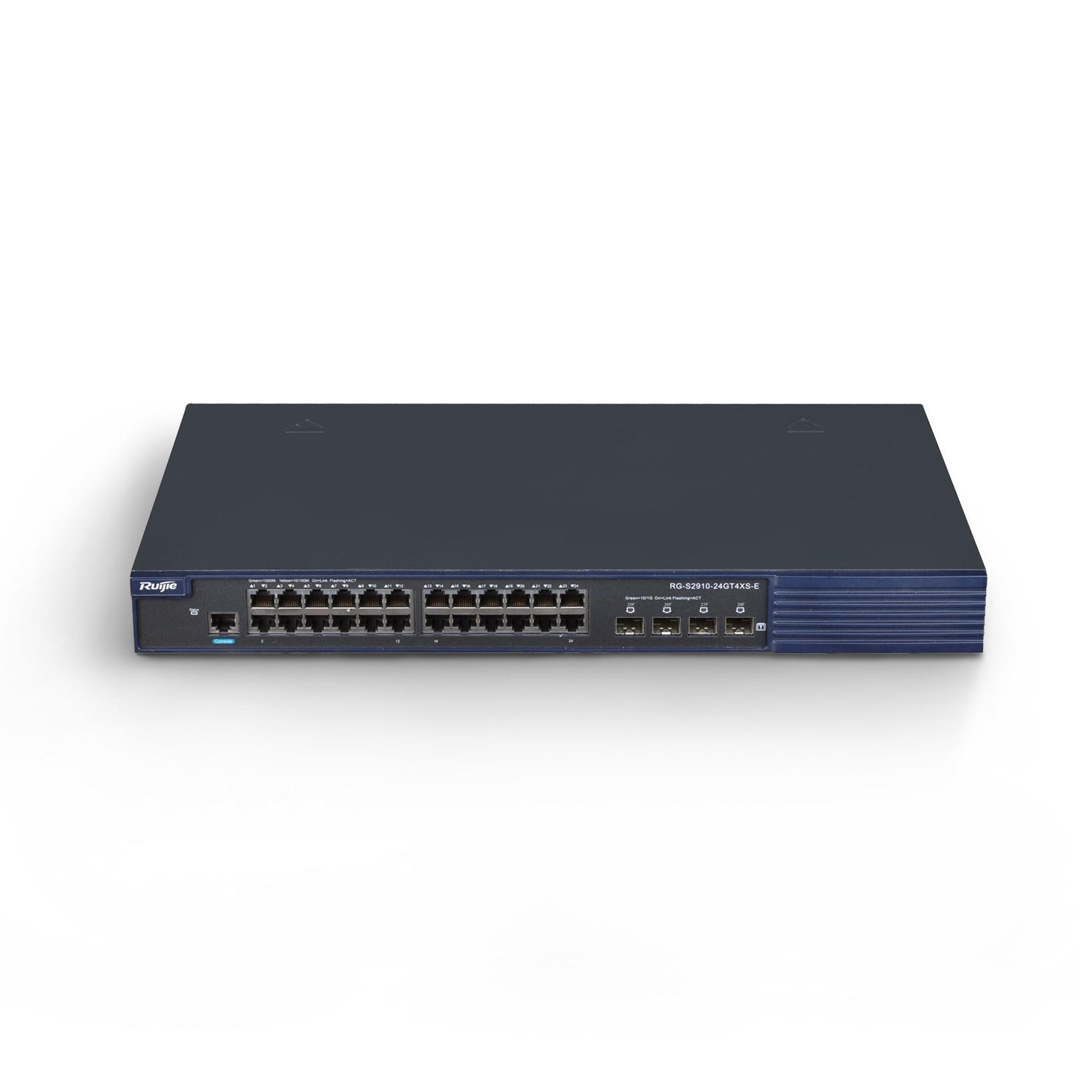
 Khuyến mãi cực sốc
Khuyến mãi cực sốc


